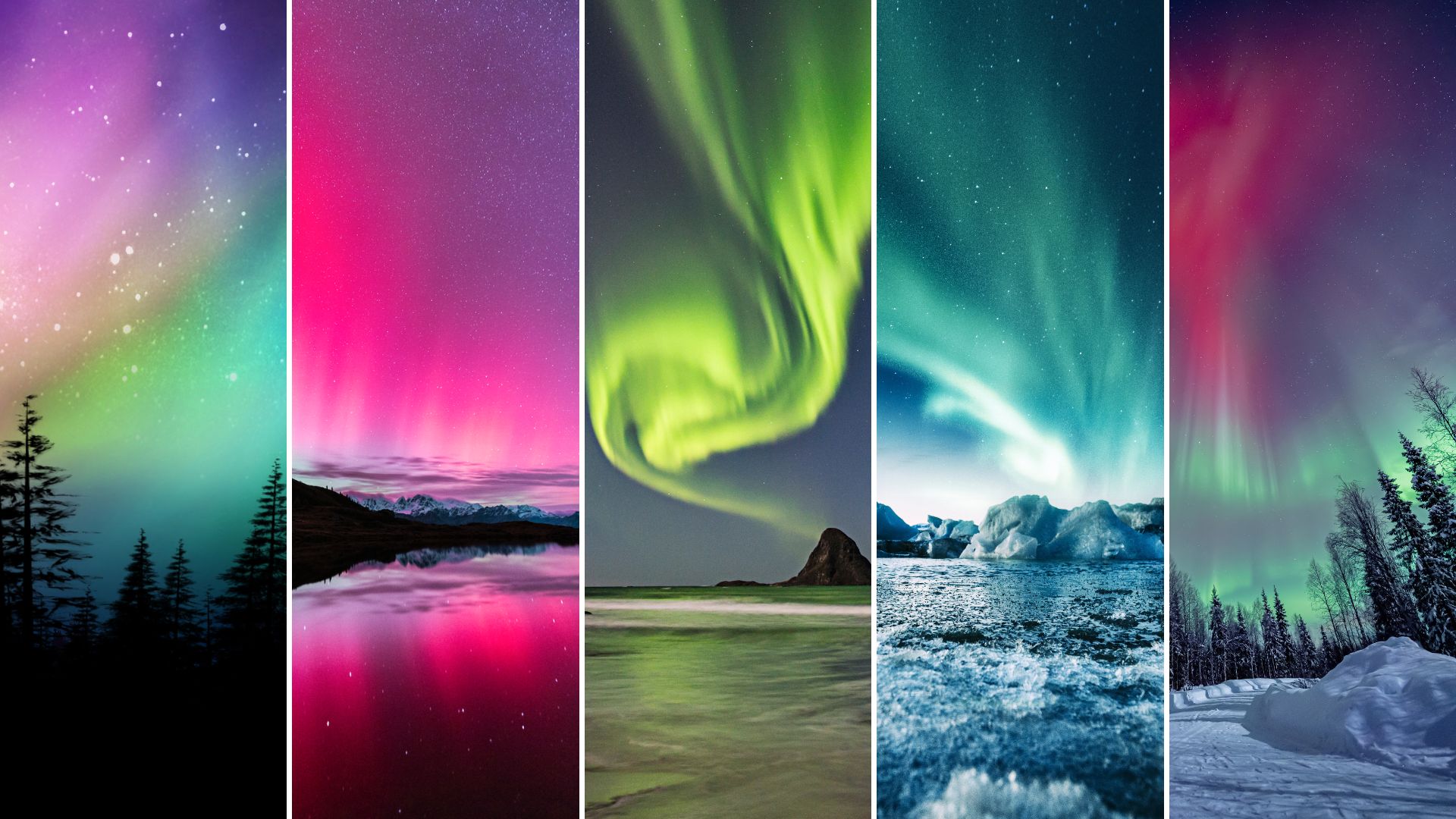
The result of disturbances in space caused by solar wind, auroras (more commonly known as Aurora Borealis or the Northern and Southern Lights) are one of Earth’s most beautiful natural occurrences.
Most commonly seen in the sky around the Arctic and Antarctic and other polar zones, the northern lights are a phenomenon many travellers are eager to witness first-hand, making spots like Finland, Norway and Iceland popular destinations for aurora hunters and photographers.
Changing over time, auroras have been spotted in a range of brilliant colours, from pinks and ultraviolet to vivid shades of blue and green and often forming arcs, rays, bursts or on occasion, simply a subtle glow.
The brilliant light forms have inspired writers, poets, philosophers and artists across the globe since the beginning of time with cave paintings dating back to 30,000 BC in northern Spain believed to be depicting the natural phenomenon. Here we showcase a selection of some of the most impressive images of the illusive lights captured on film.
Inspiring images of the Northern Lights
Canadian forest
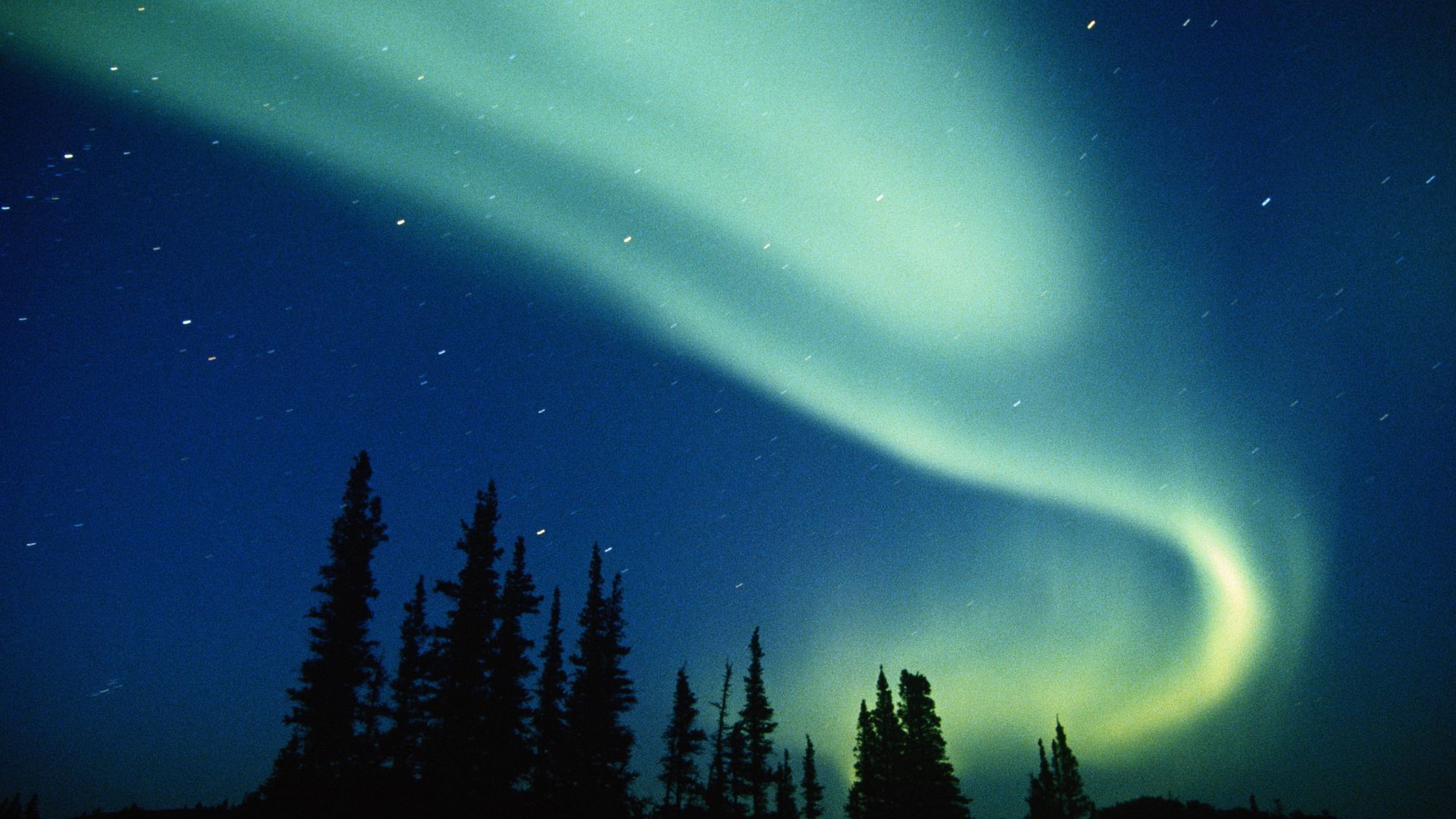
Captured in Canada’s Northwest Territories - one of the best places in the world to see the Northern Lights - this impressive luminous aurora pops out from behind a selection of large evergreen trees reaching high into the sky. The swirl of neon green and aquamarine is one of the most common auroras due to high eye sensitivity and a larger concentration of atomic oxygen.
Full of stars
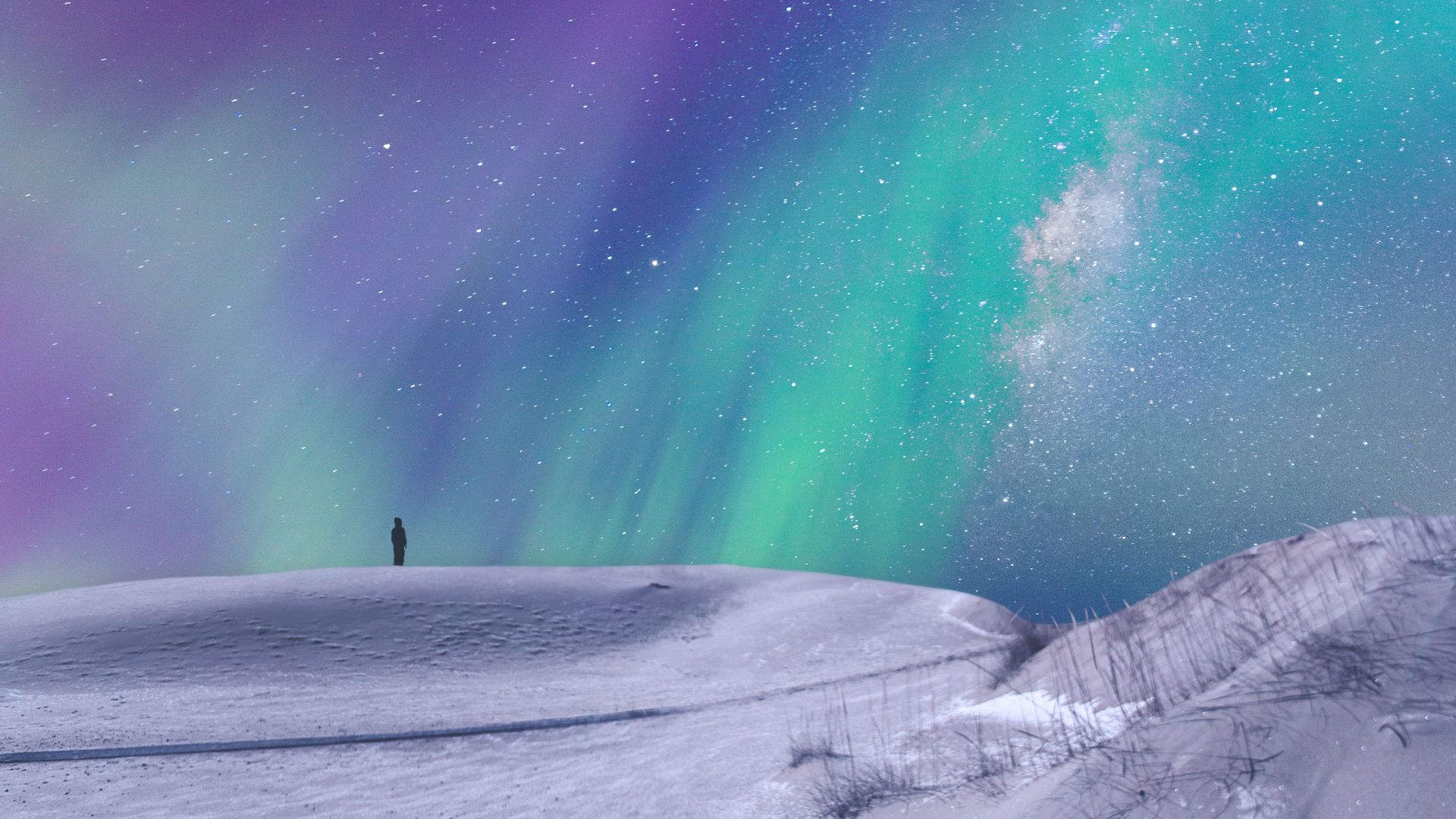
In an image that almost doesn’t look real, these beautiful turquoise lights are showcased over a snowy field punctuated by thousands of bright white stars. The aurora’s glimmering displays can be seen from Earth and other planets in our solar system, such as Neptune, Jupiter, Saturn, Mars, and Uranus.
Hot pink
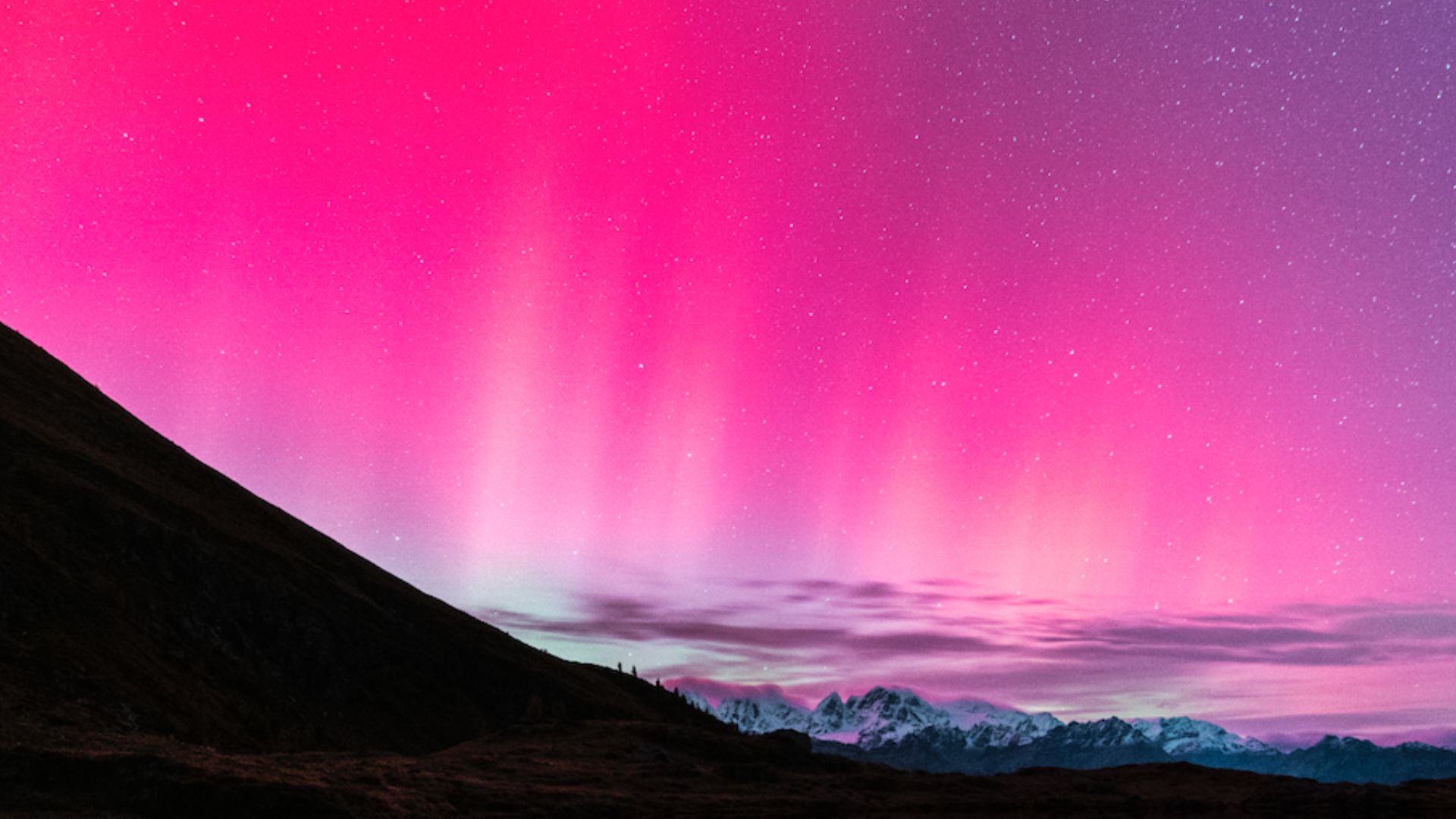
A range of subtle light beams streak this hot pink sky during an unusual Aurora Borealis over the Italian Alps. Hues of carmine, scarlet and crimson are the most often-seen shades of red when it comes to the auroras making these images quite rare. Red lights are often only produced at around 300 kms out in the atmosphere making them harder to spot but it’s entirely possible when aurora strength is at its peak.
Finnish dream
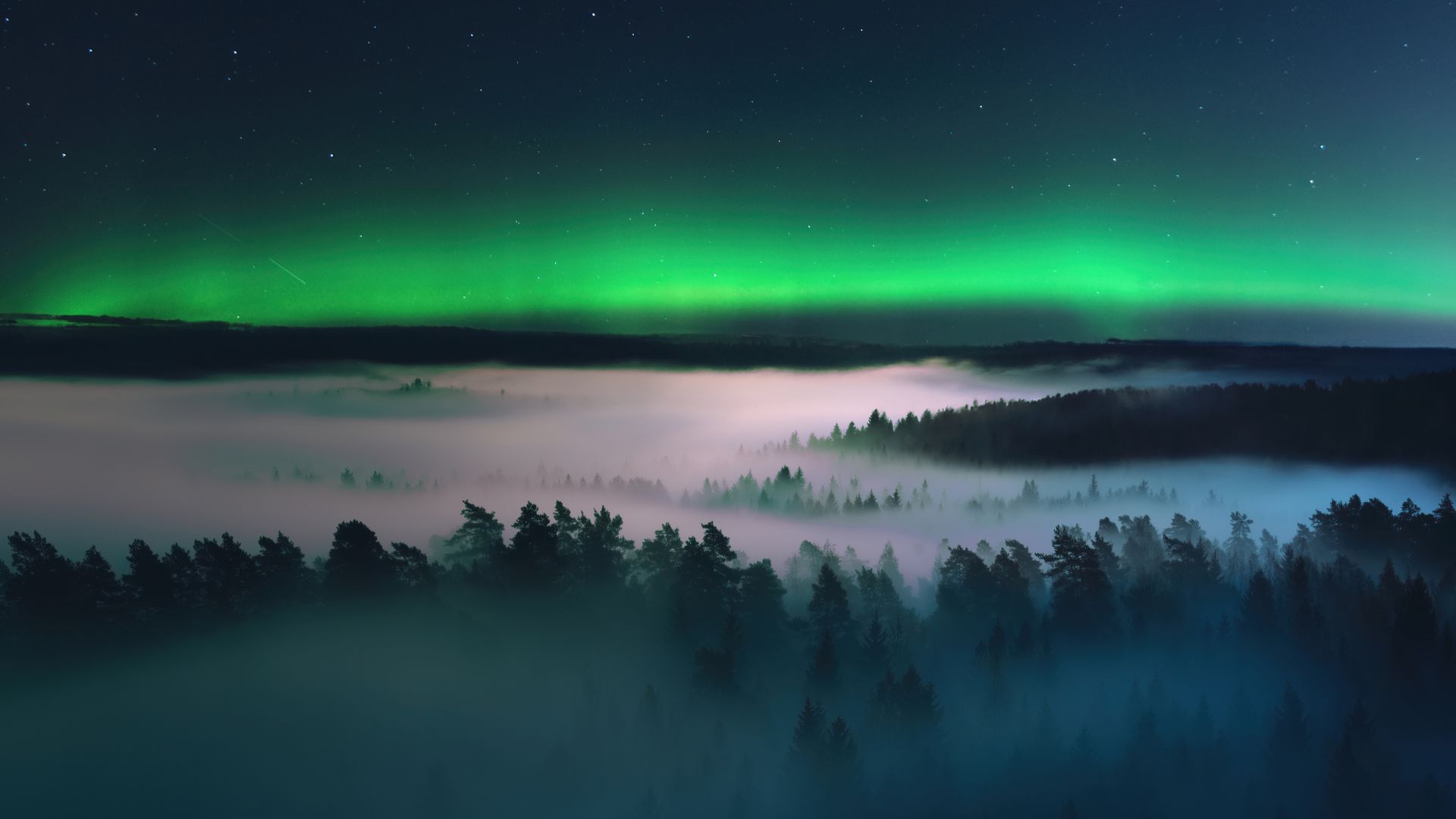
With beautiful natural forests, the unique nature reserve area of Hämeenlinna in Finland is one of the best European spots to see the lights and provide a dream backdrop thanks to layer upon layer of gorgeous mist-steeped forest. Wintertime provides a better chance of spotting the lights since they’re best spotted after dark and winter is the darkest season.
Rainbow sky
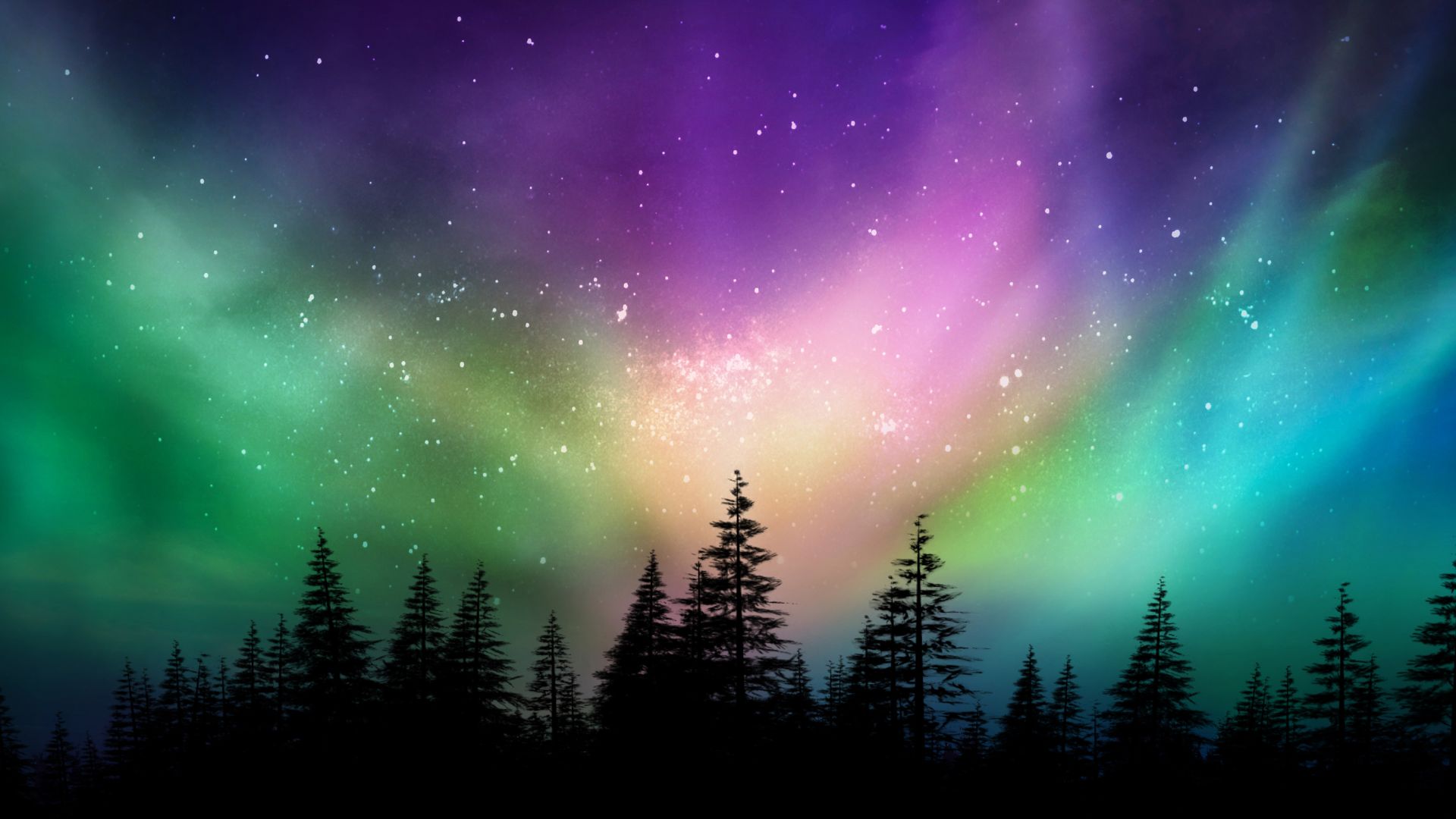
These multicoloured Northern Lights, spotted in a Canadian forest, prove it’s possible to see nearly all of the rainbow's colours splashed across the night sky. While you can see strong Northern Lights with the naked eye, cameras tend to pick up more vivid colours since exposure time can be lengthened, which is what we imagine happened to be able to capture these wonderful images.
Smoke stream
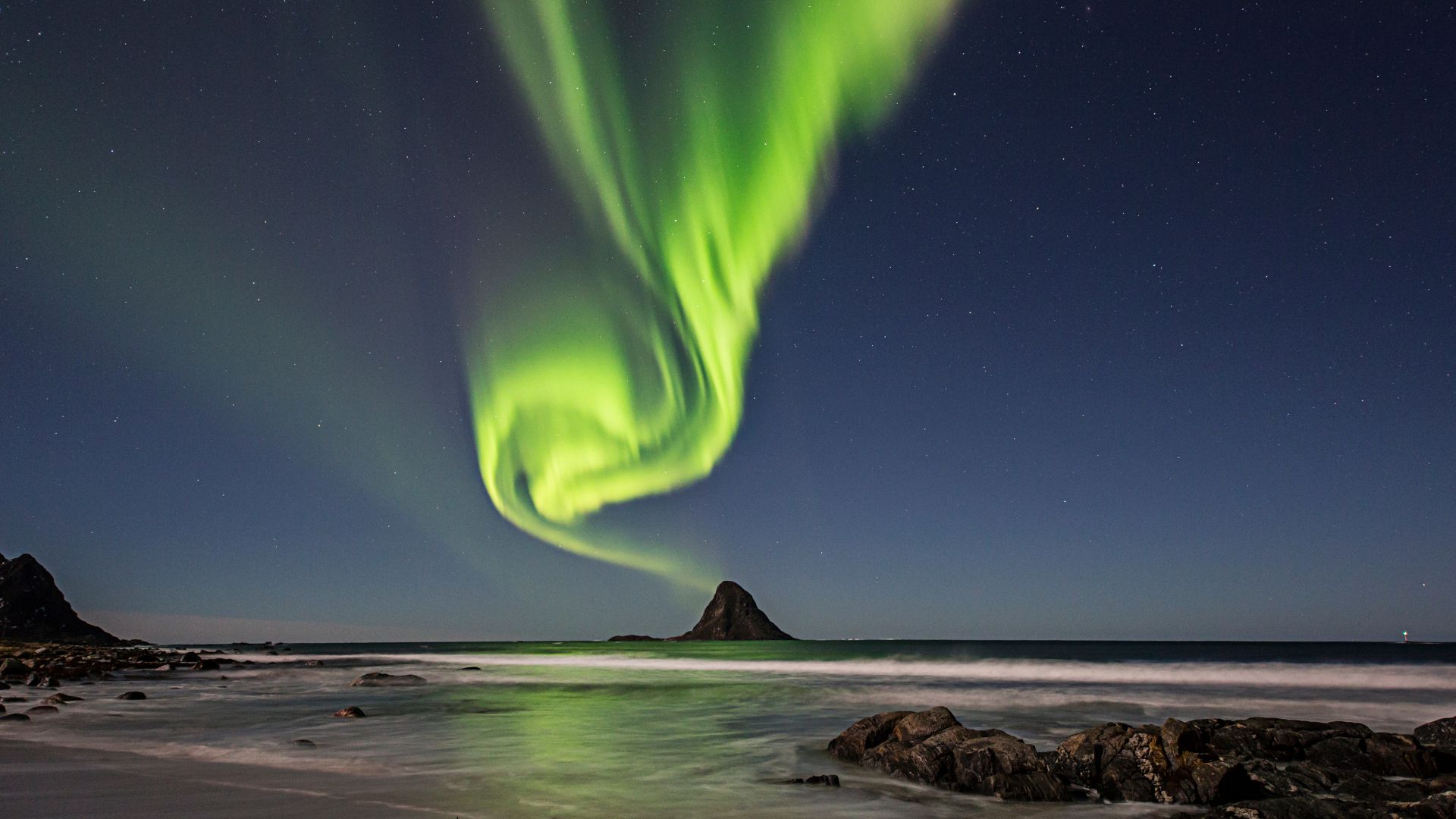
Taken at 1am in December 2013, this stunning image has well and truly stood the test of time. The green band of the aurora seems to rise like smoke from the top of the rock creating a seriously magical effect. Astronomer Galileo Galilei is to thank for naming the natural light display the Aurora Borealis, he took the name of the Roman goddess of dawn, Aurora and paired it with the Greek name for wind, Boreas.
Shape shifter
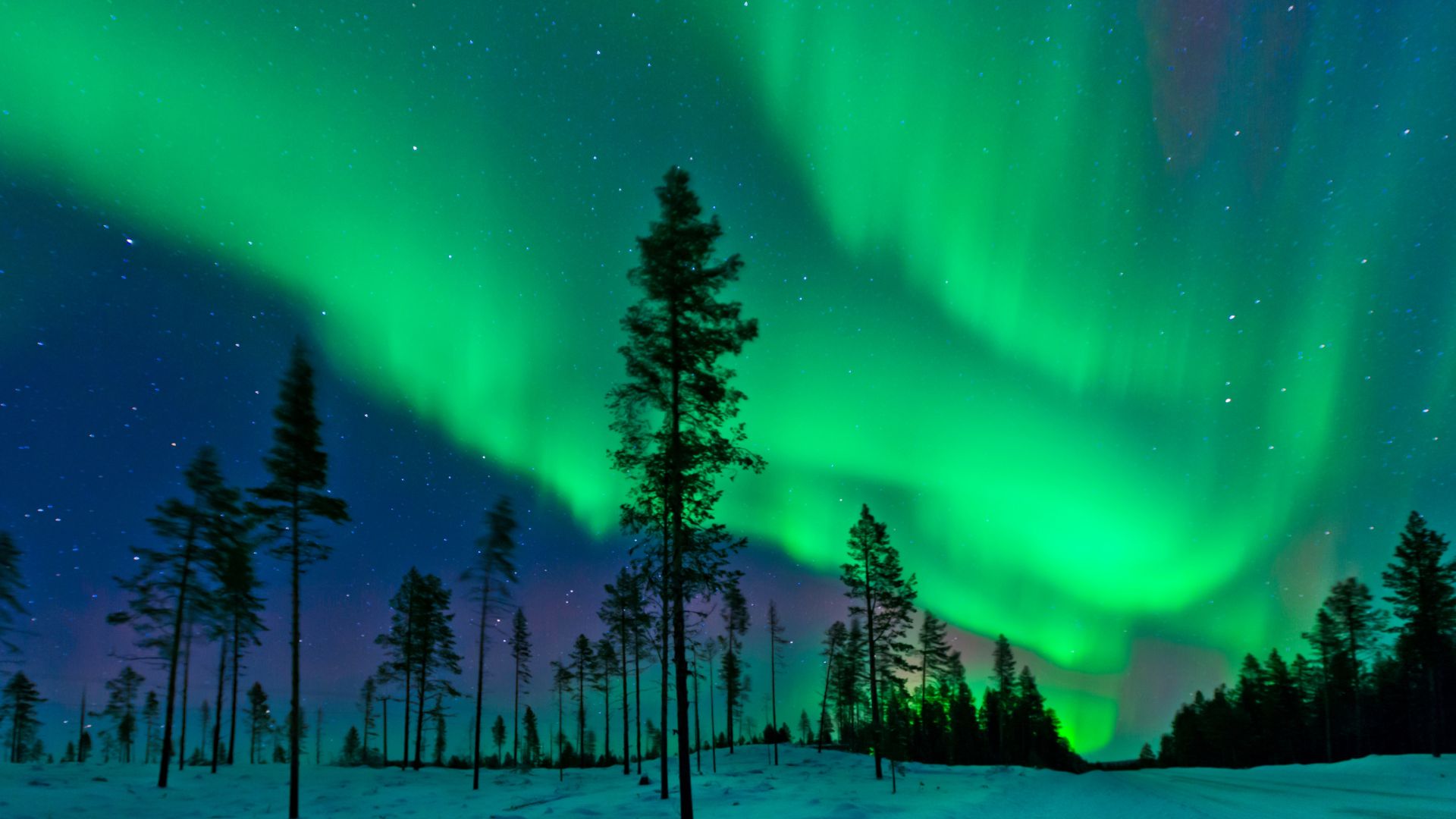
Captured in a clearing in a Swedish coniferous forest, this striking image showcases the incredible beauty of the Northern Lights and the fact that no two light displays are ever the same shape. Depending on the atmosphere’s electrons and what causes them to engage, the shapes created can range from the most popular ‘curtain’ shape to streaks, arcs, and even hazy patches of light.
Streaked night sky
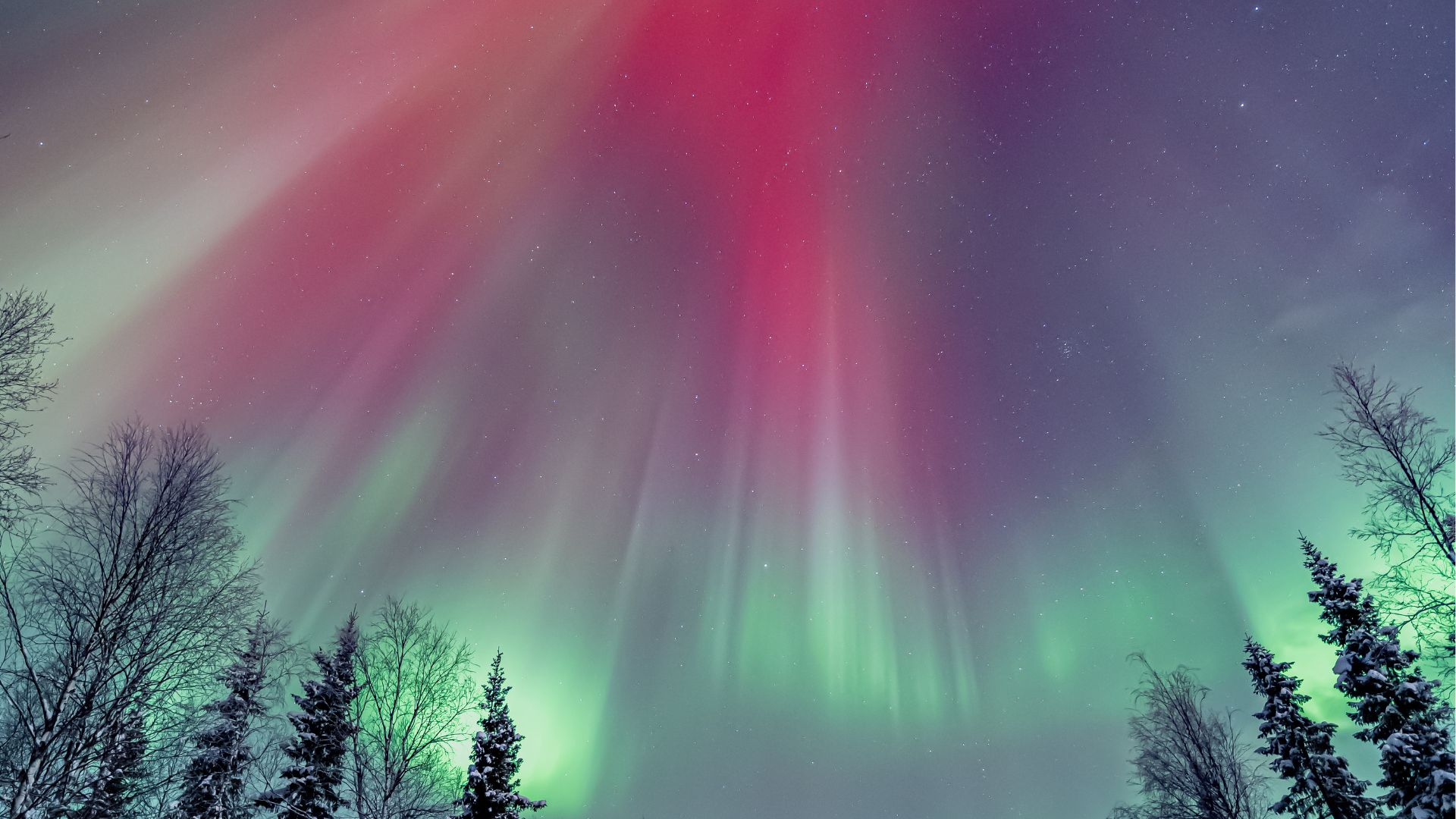
This scenic view of snow-covered trees against the sky was taken in Kolari, Finland, a town in the region of Lapland, close to the Swedish border. Showcasing panels or streaks of light created by solar particles moving at seven million miles per hour, the elusive lights move fast, creating different patterns as they go.
Glacial river lagoon
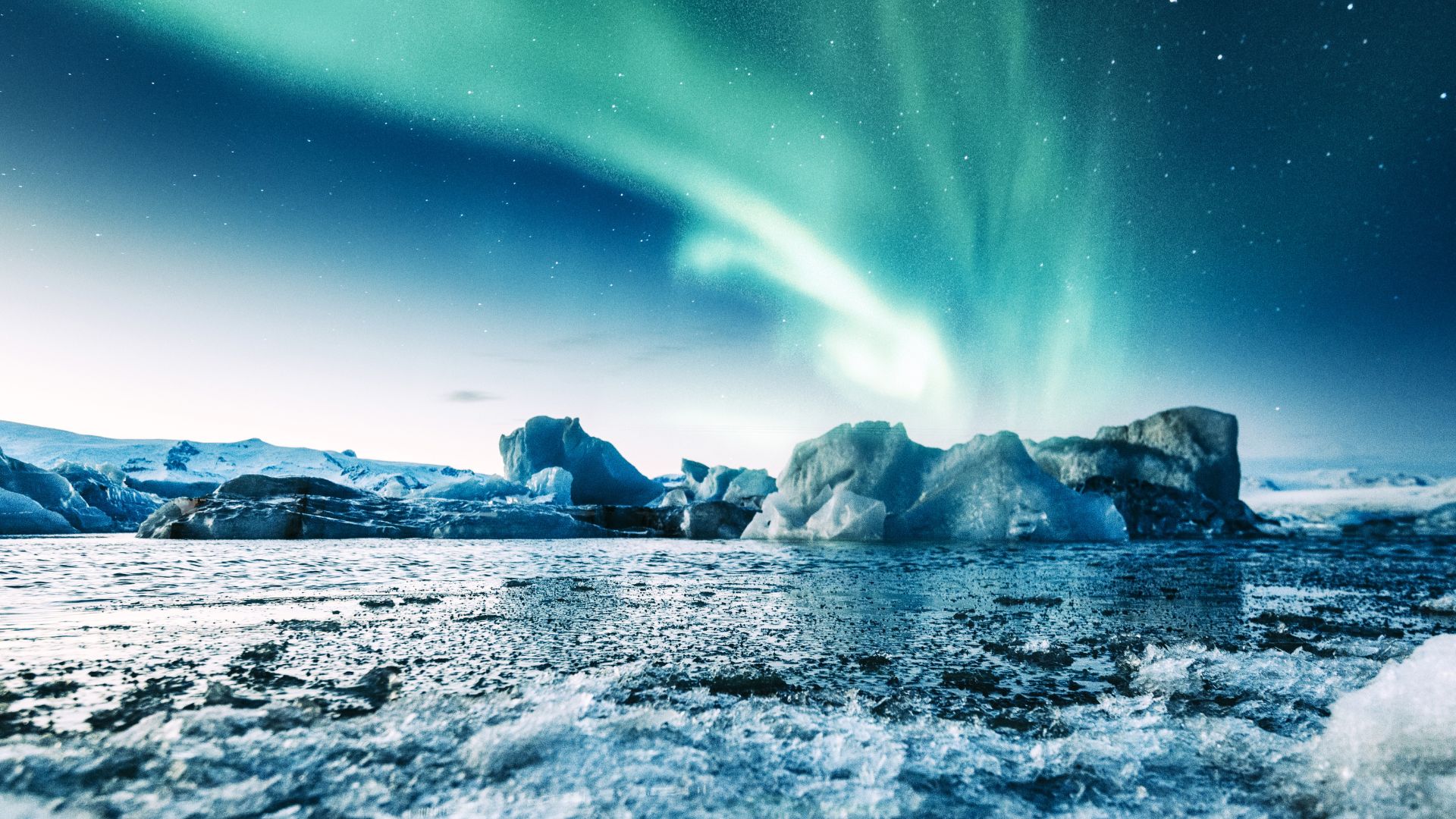
Iceland is prime Northern Light spotting territory, including the magical, mystical Jökulsárlón glacial river lagoon, where beautiful ice-filled images can be snapped should you be lucky enough to chance upon them. Here beams of aqua seem to burst out from behind the ice caps creating an utterly ethereal image that’s possible to replicate by taking a boat tour out into the lake after dark.
Geomagnetic storm
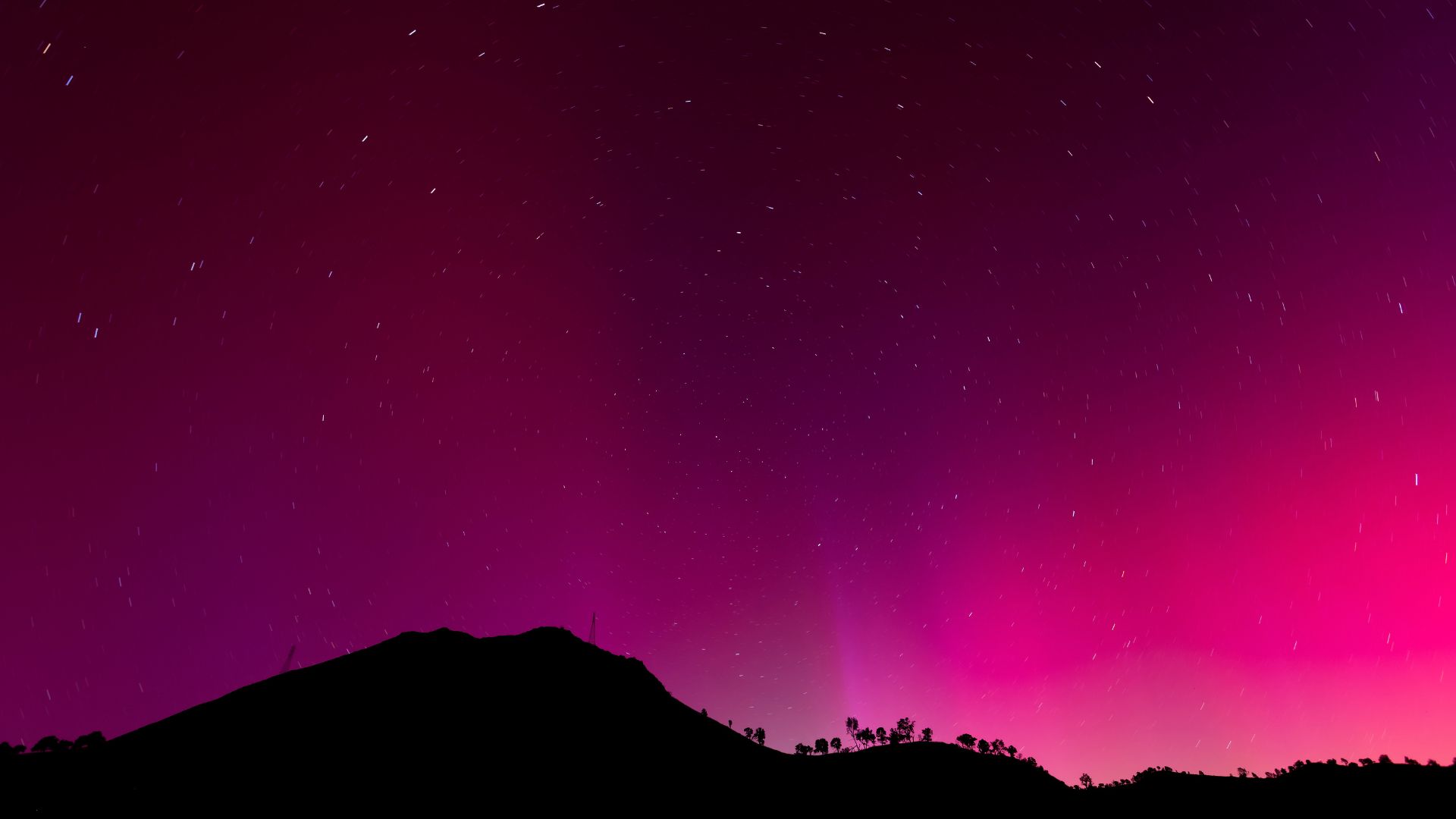
National Oceanic and Atmospheric Administration officials remarked that this image was made all the more impressive thanks to a rare geomagnetic storm that hit Earth in 2024. Visible over Lake Berryessa in California, the deep maroon and purple hues look completely otherworldly in this one-of-a-kind photograph.
Snowcapped peaks
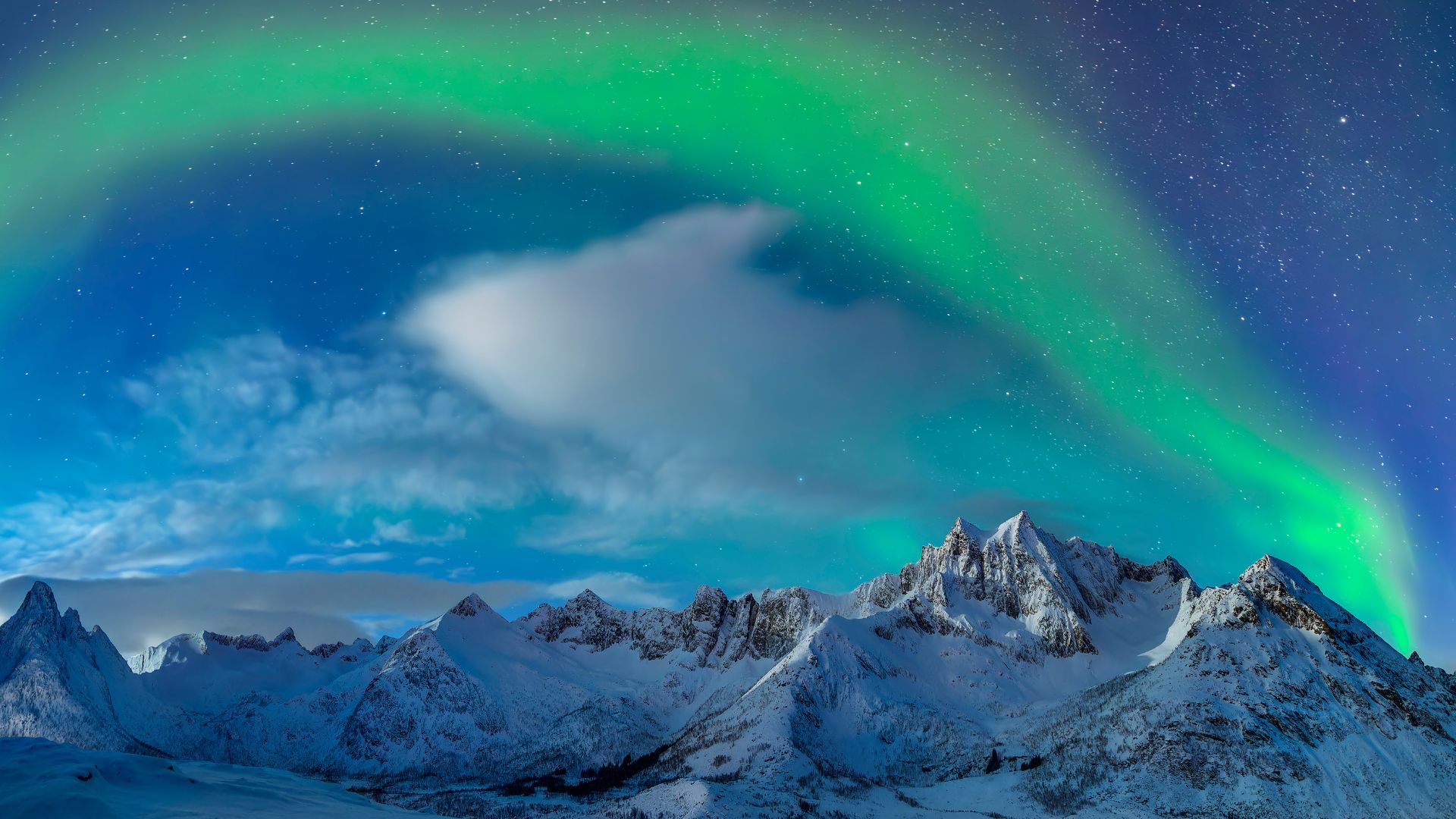
A bright green Aurora Borealis streaks the night sky over snowcapped mountains on Senja Island in Norway, creating a magical effect. As the second largest island in Norway, Senja Island has a wild, mountainous side facing the Atlantic from where northern light spotting has become a favourite pastime.
Vibrant view
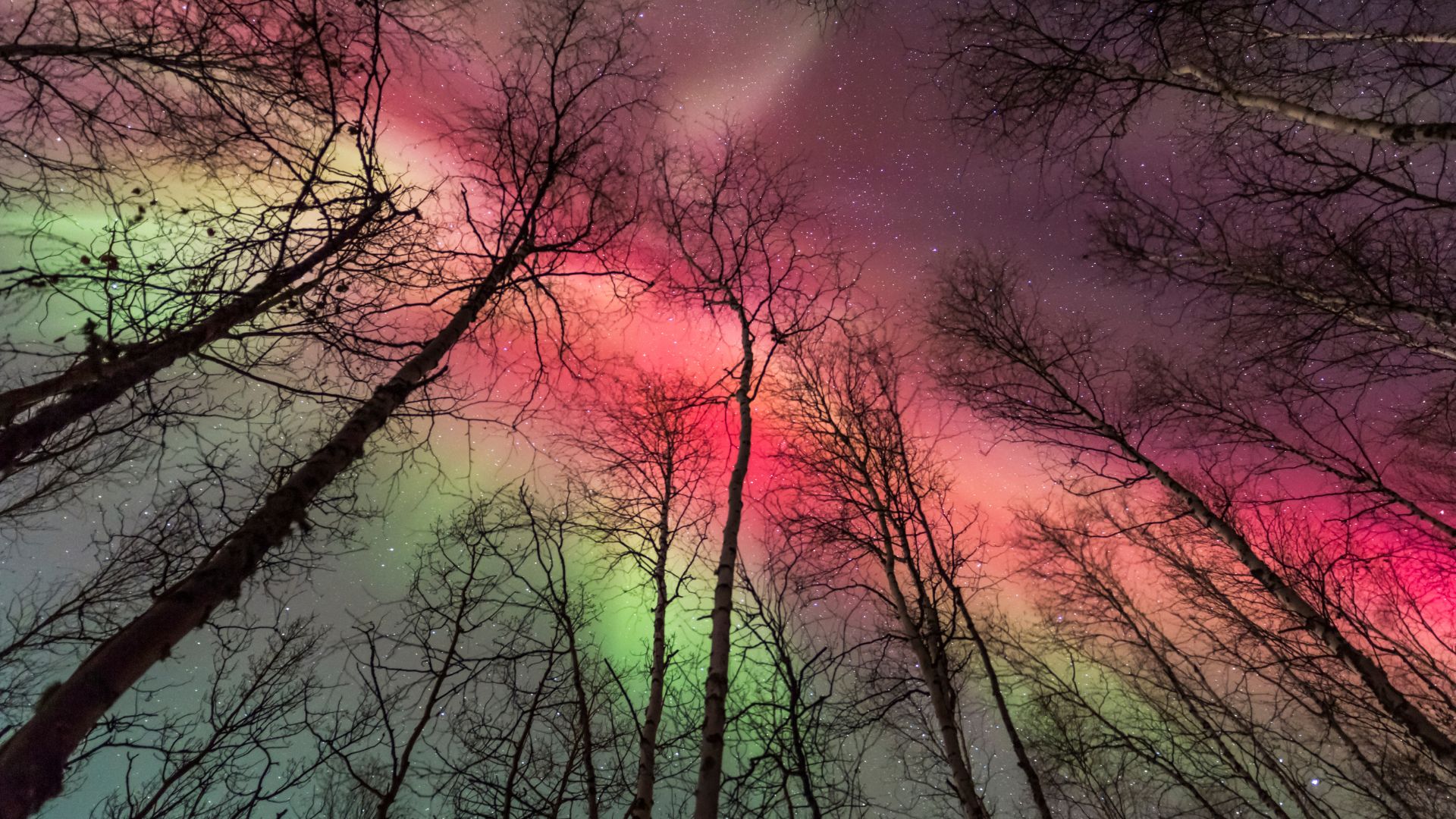
This incredible image was snapped in Fairbanks, Alaska as a vibrant red and green Aurora Borealis danced above birch trees in a forest. Interestingly, as well as looking incredibly stunning, some of the strongest auroras make sounds too, with popping, hissing, and whooshing sounds having been captured on recordings made in Finland.
Magnetic forces
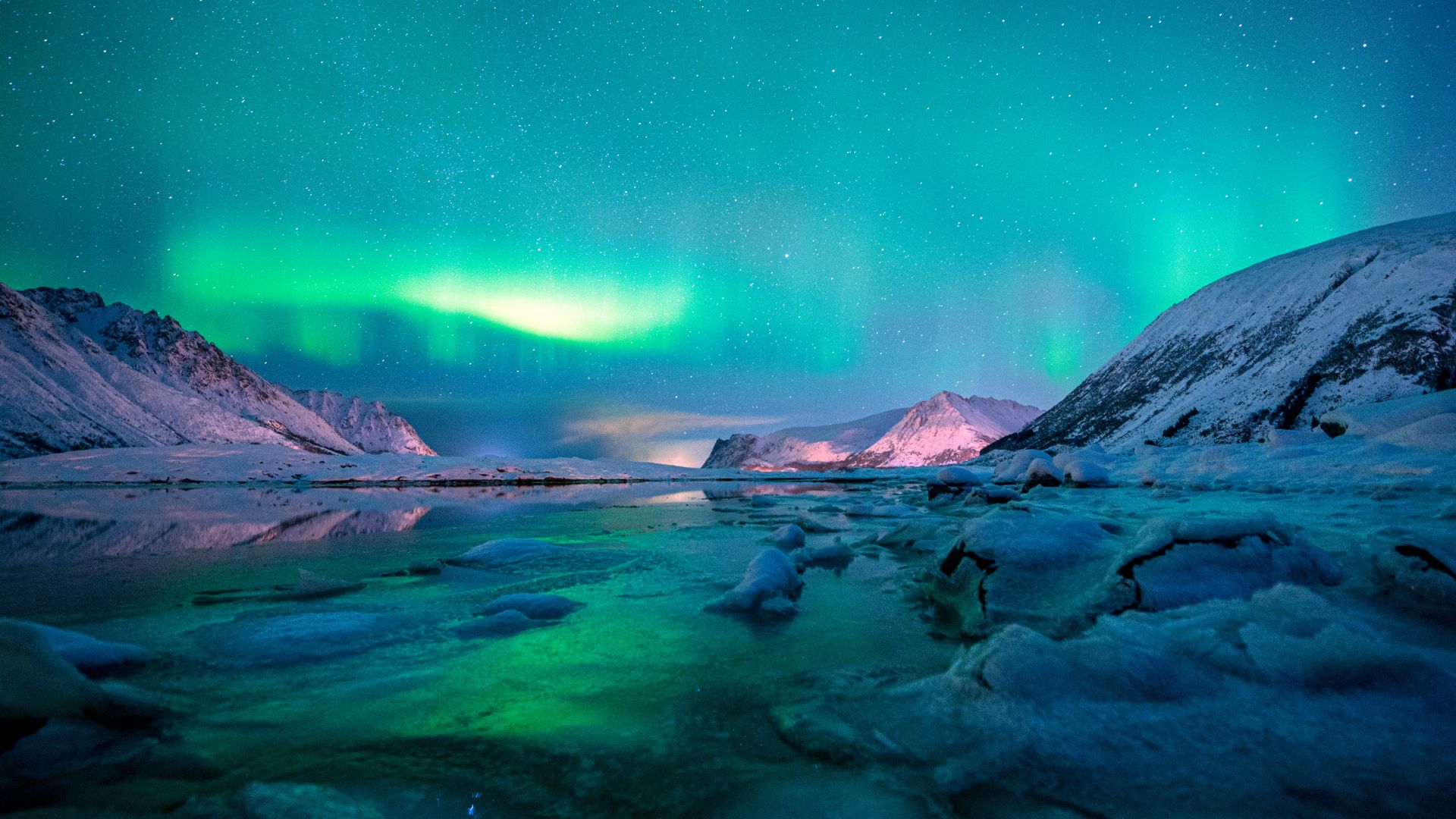
Captured in the winter skies above northern Norway, this magical image wouldn’t be possible without the invisible magnetic field that flows around the earth, the pretty green colour of this aurora is a direct result of charged particles colliding with oxygen atoms.
Good luck
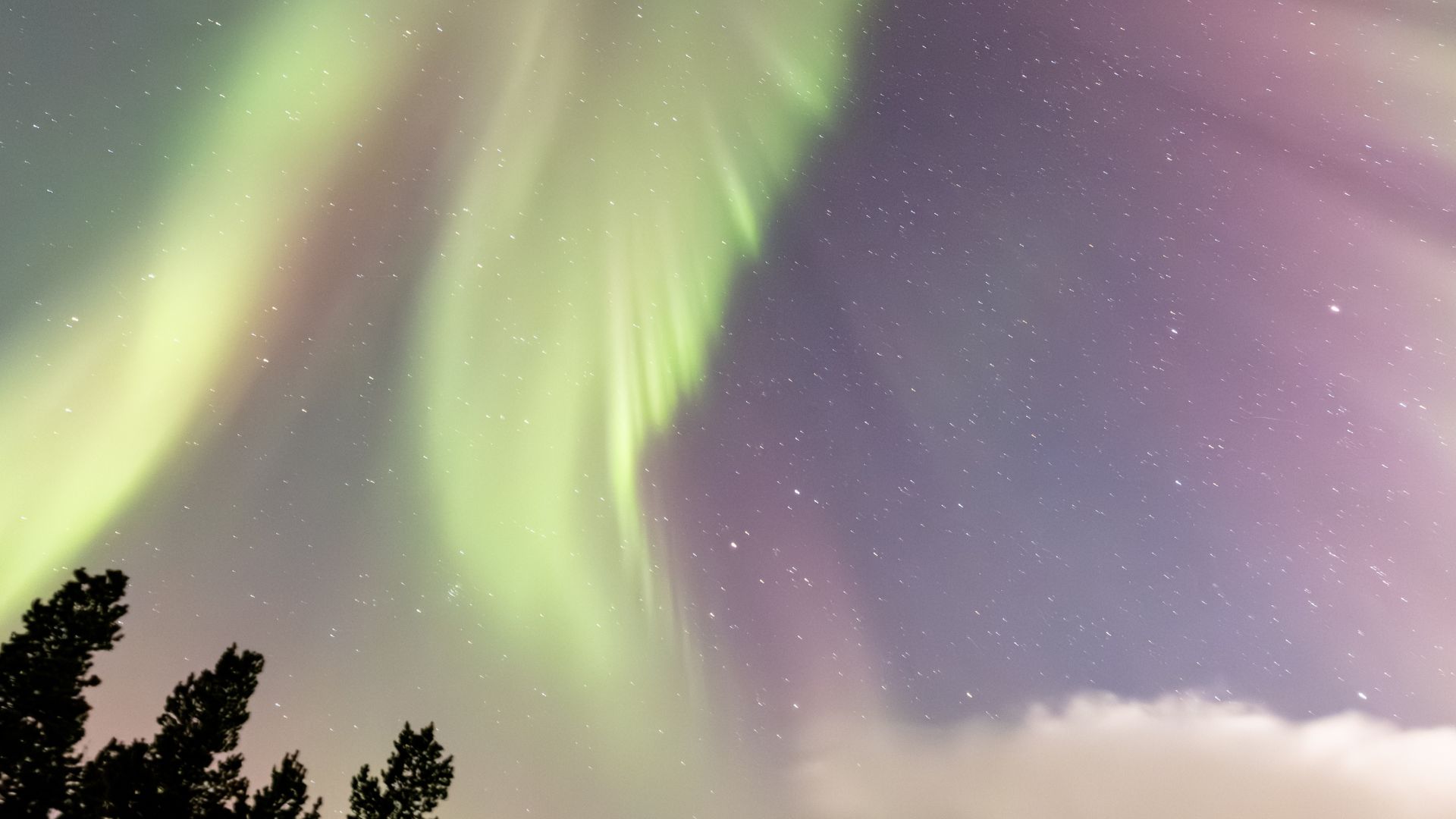
Scandinavian fishermen believed at one point that the great Northern Lights were actually created by the reflection of large shoals of fish in the ocean. They nicknamed the phenomenon sillblixt (herring flash) and believed it was a good omen, one that would result in an abundant haul.
Icy views
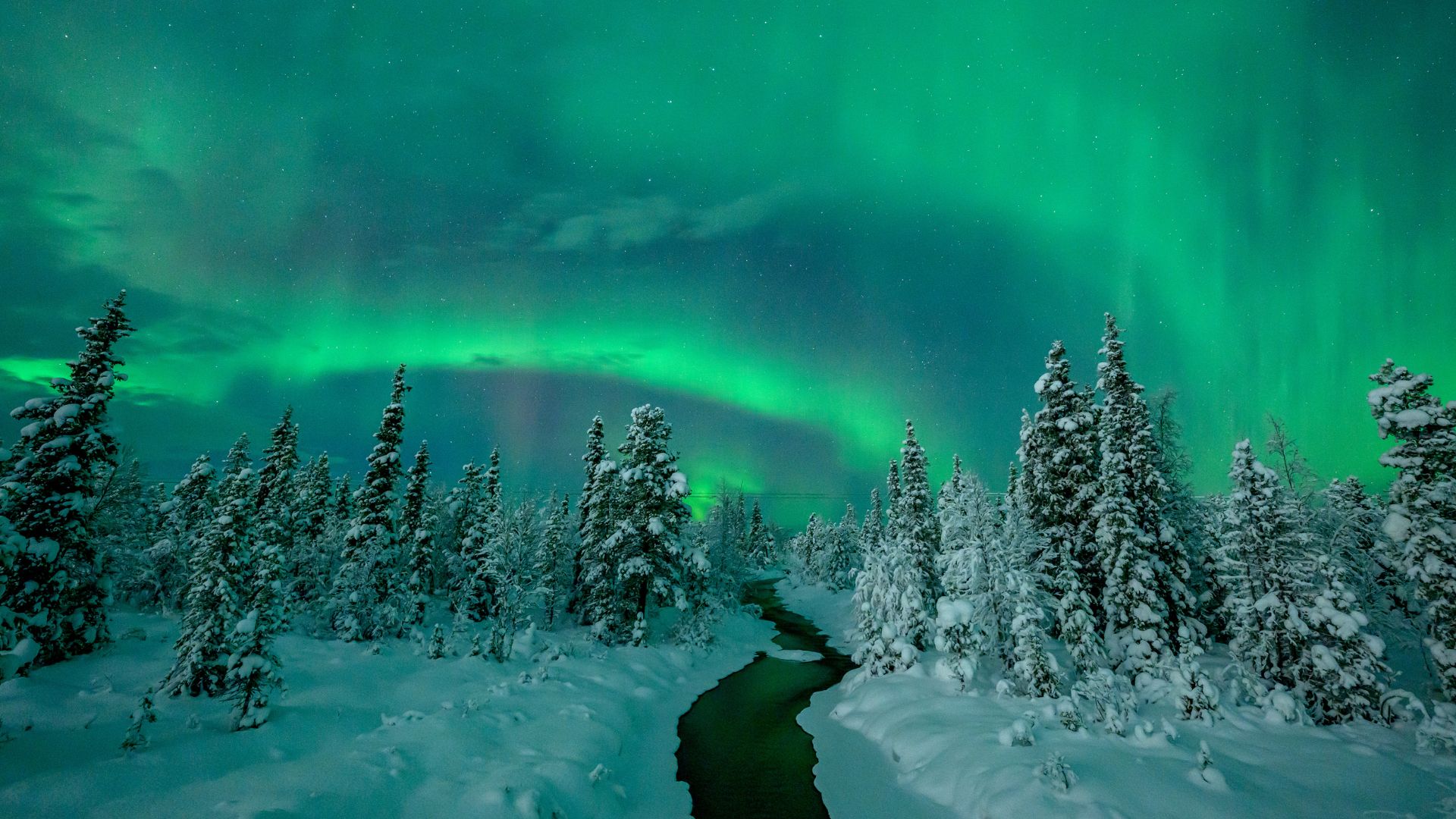
Here the Northern Lights shine over a stream near an Ice hotel in Jukkasjarvi, Sweden. Since 1989, the Ice Hotel - part hotel, part art exhibition - has been crafted annually from ice taken from the Torne River.
Italian dream
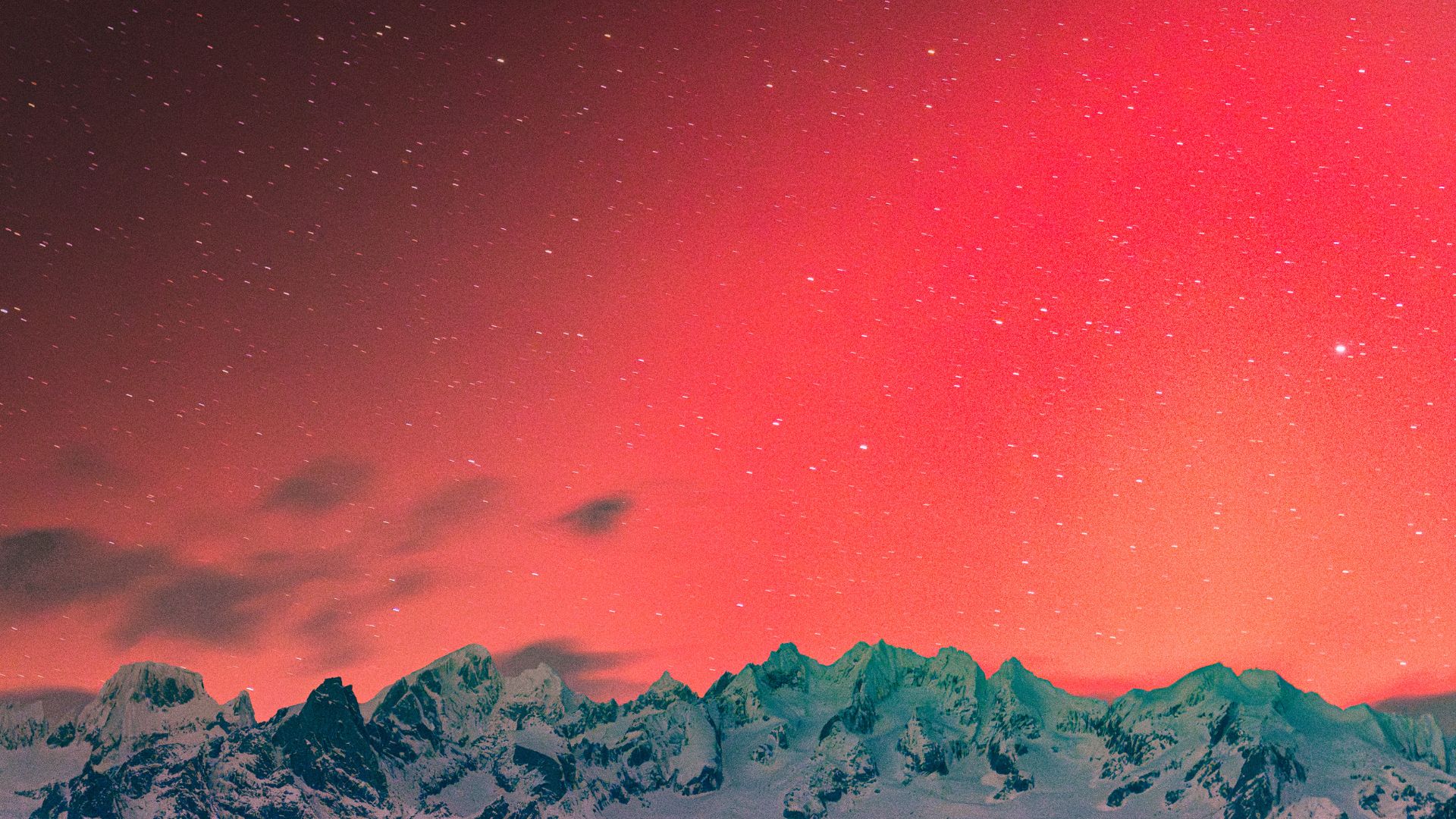
It’s even possible to see the elusive Northern Lights in parts of Italy as evidenced in this wondrous image where a bold red burning sky with glowing stars was photographed during an unusual Aurora Borealis over the Italian Alps in Val Masino, Lombardy, Italy.
Realm of the gods
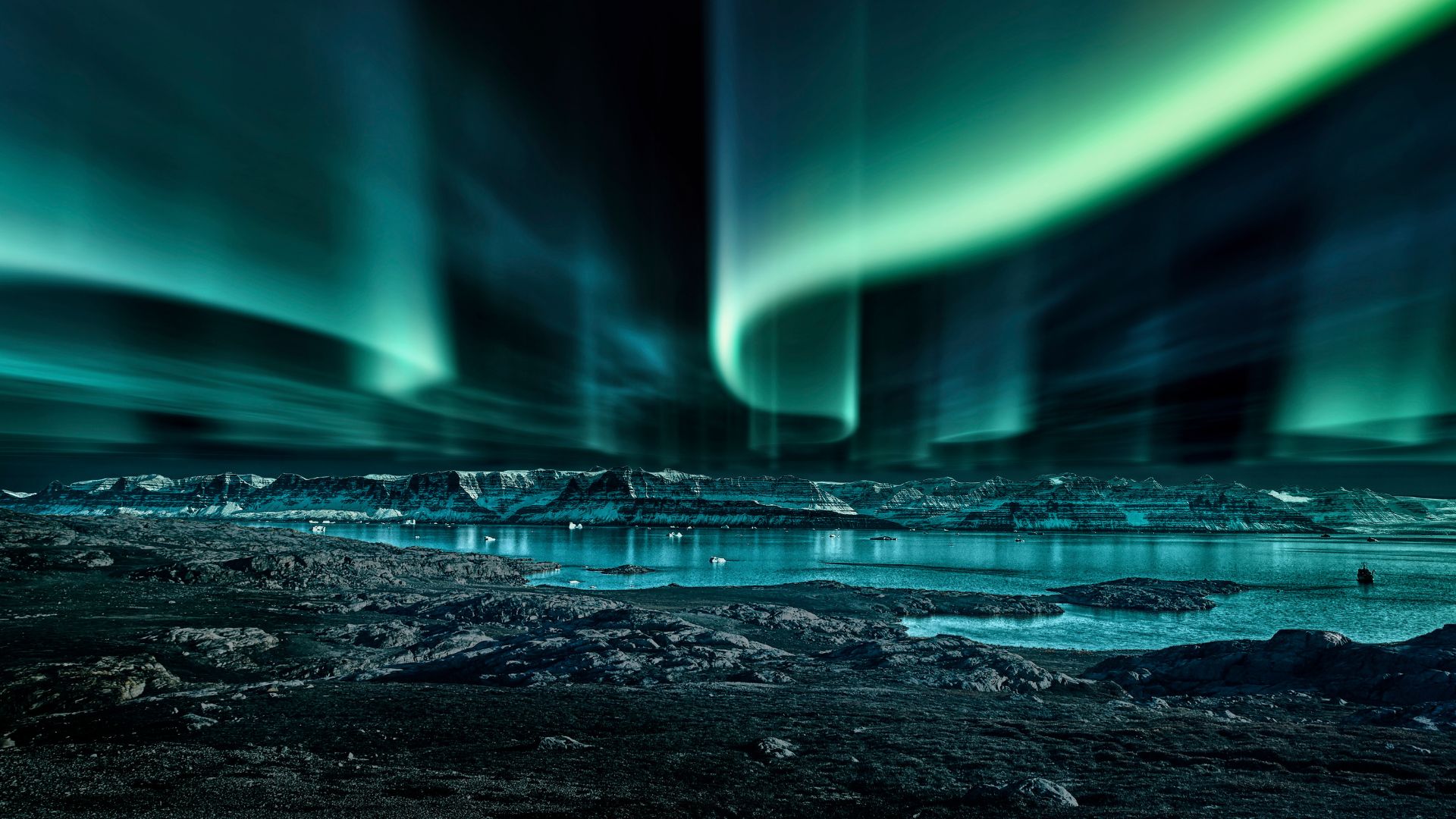
Photographed over a floating iceberg in a fjord in Greenland at night, it’s hard to believe these ribbon-like pale green swirls are real. No wonder that in Old Norse mythology, the lights were believed to provide a bridge between earth and a realm of the gods.
Prehistoric showdown
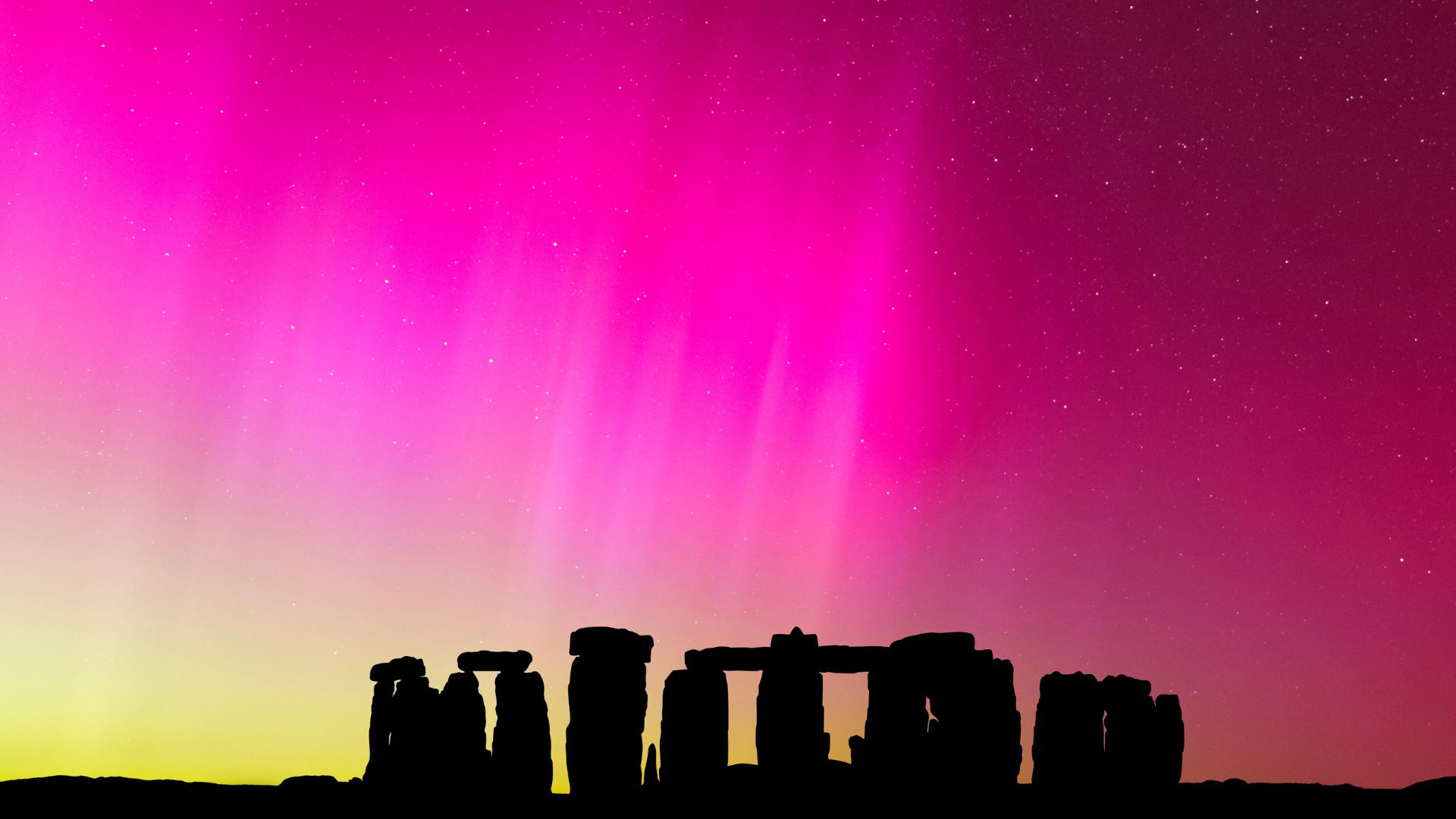
As well as providing spectacular displays in the Nordic Region it’s sometimes possible to spot the lights a little closer to home. Here, one eagle-eyed photographer captures a brilliant display of vivid pink and yellow over the prehistoric megalithic structure of Stonehenge.
Mesmerising display
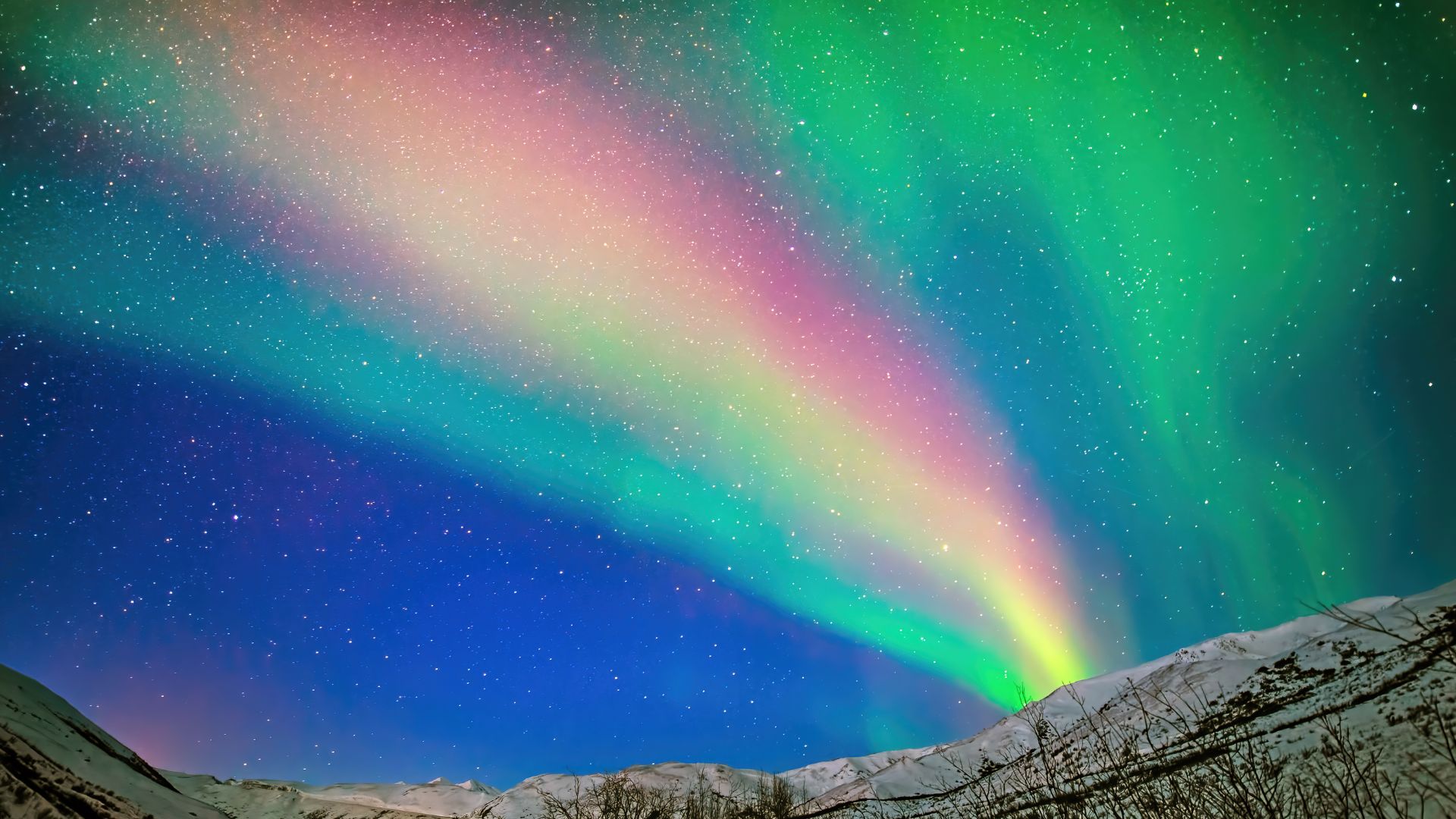
Gracefully pirouetting above the mountain peaks near Coldfoot in Fairbanks, Alaska, a strong geomagnetic activity was captured illuminating the Alaskan skies with a mesmerising display of colours. Rainbow lights are extremely rare but provide one of the most captivating displays imaginable.
Firefox
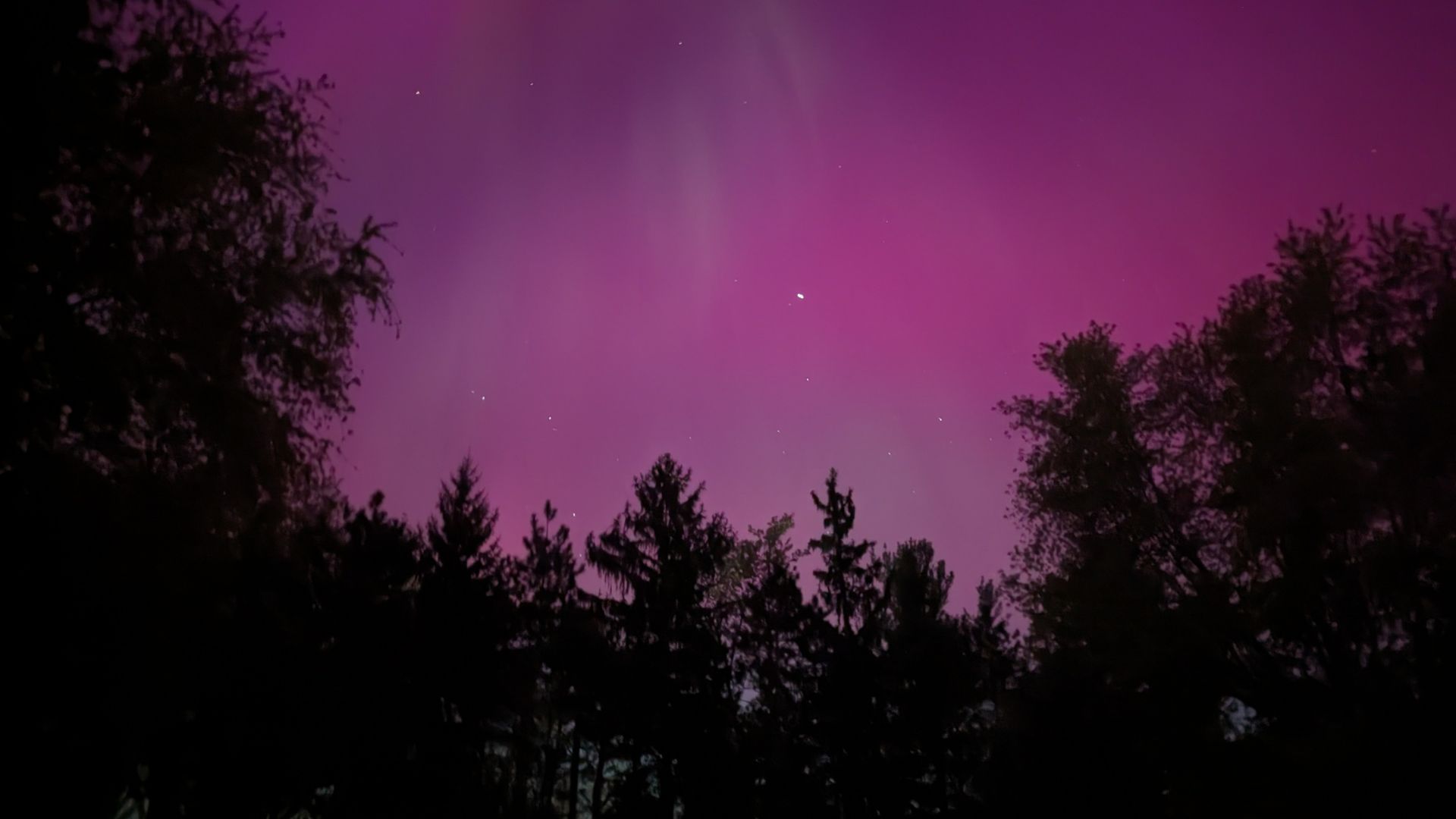
Ancient Finnish folk tales in Lapland talk of a ‘Firefox’ who’s believed to cause the Aurora Borealis with its tail. It’s been said that the fox's tail flings sparks when it touches low-hanging branches or bushes as the fox is running, in turn creating the majestic displays we today call the Northern Lights.
Subtle magic
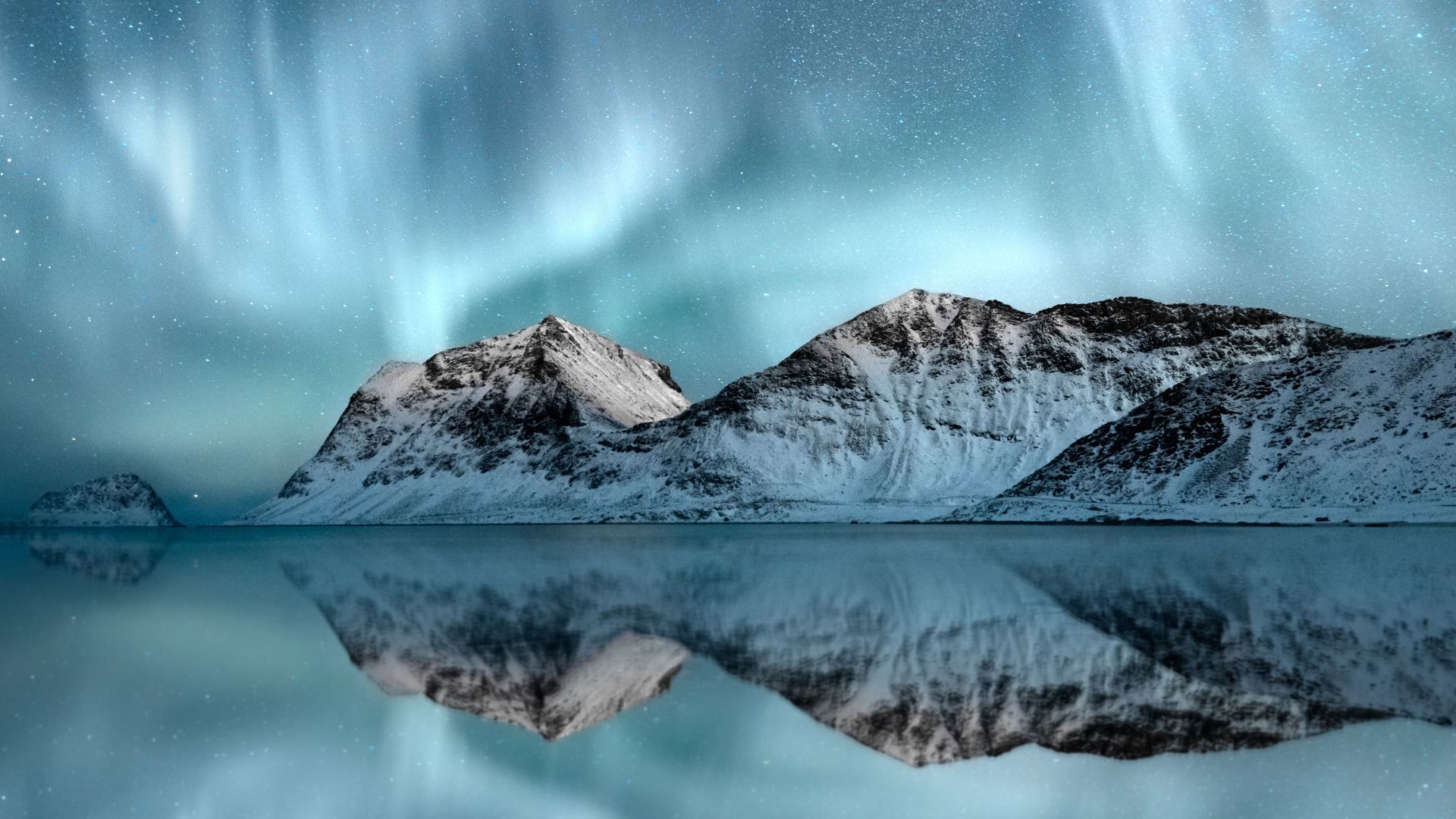
Even the subtler Northern Light displays are beautiful, especially when emphasized by Norway’s incredible scenery as seen here with snowy mountain reflections in Nordland, one of the three northernmost counties in Norway.
Lagoon reflections
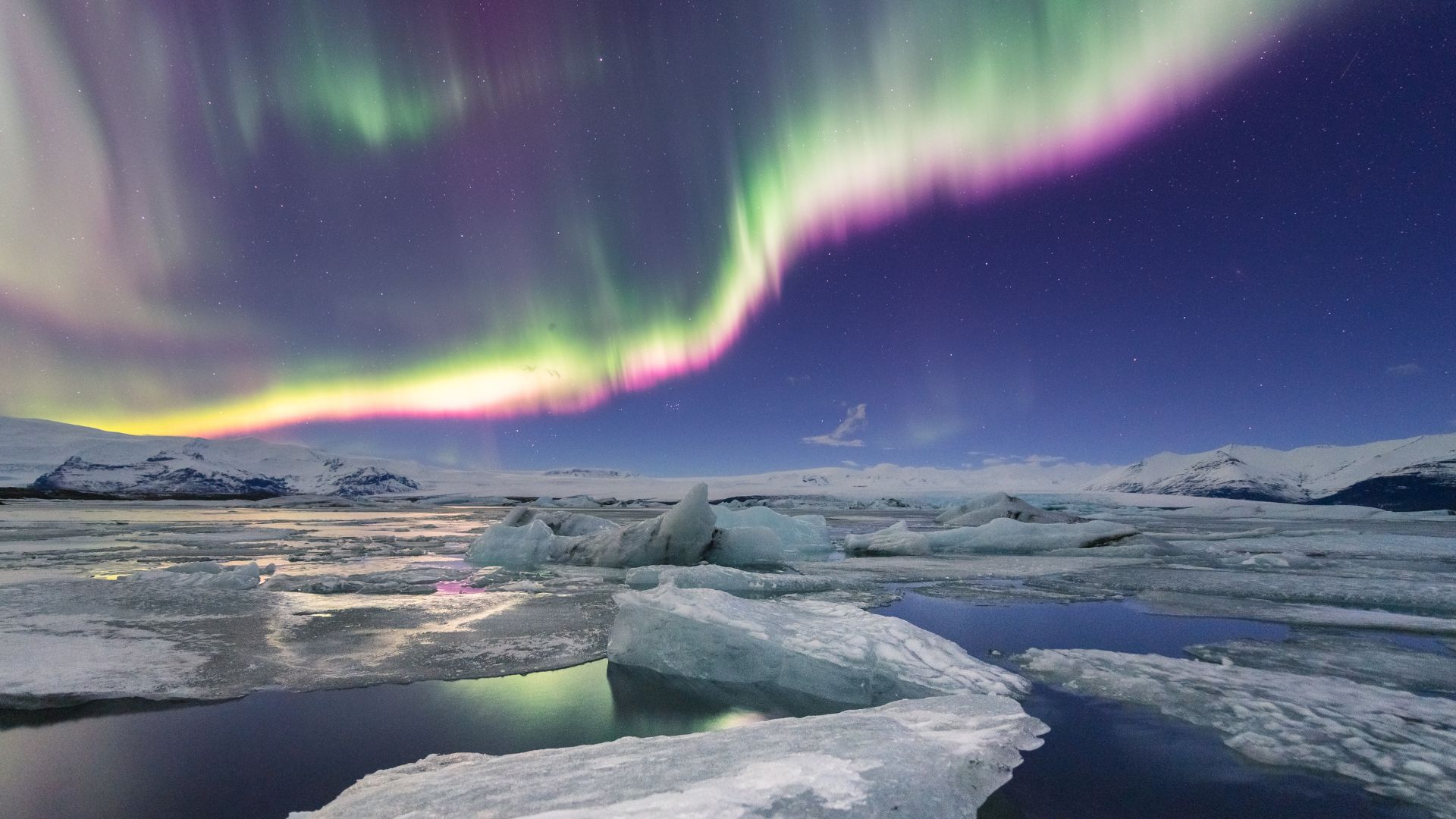
This multicoloured swoosh over Jokulsarlon glacier lagoon in Iceland reflects pink, white, yellow, and green glimmers in the ice-laden lagoon below creating a photographer's dream scenario. As Iceland's most famous glacier lagoon, it’s a popular spot not only for aurora hunters but also for film fans since the mystical lagoon has been featured in two James Bond movies as well as Game of Thrones.
Deep respect
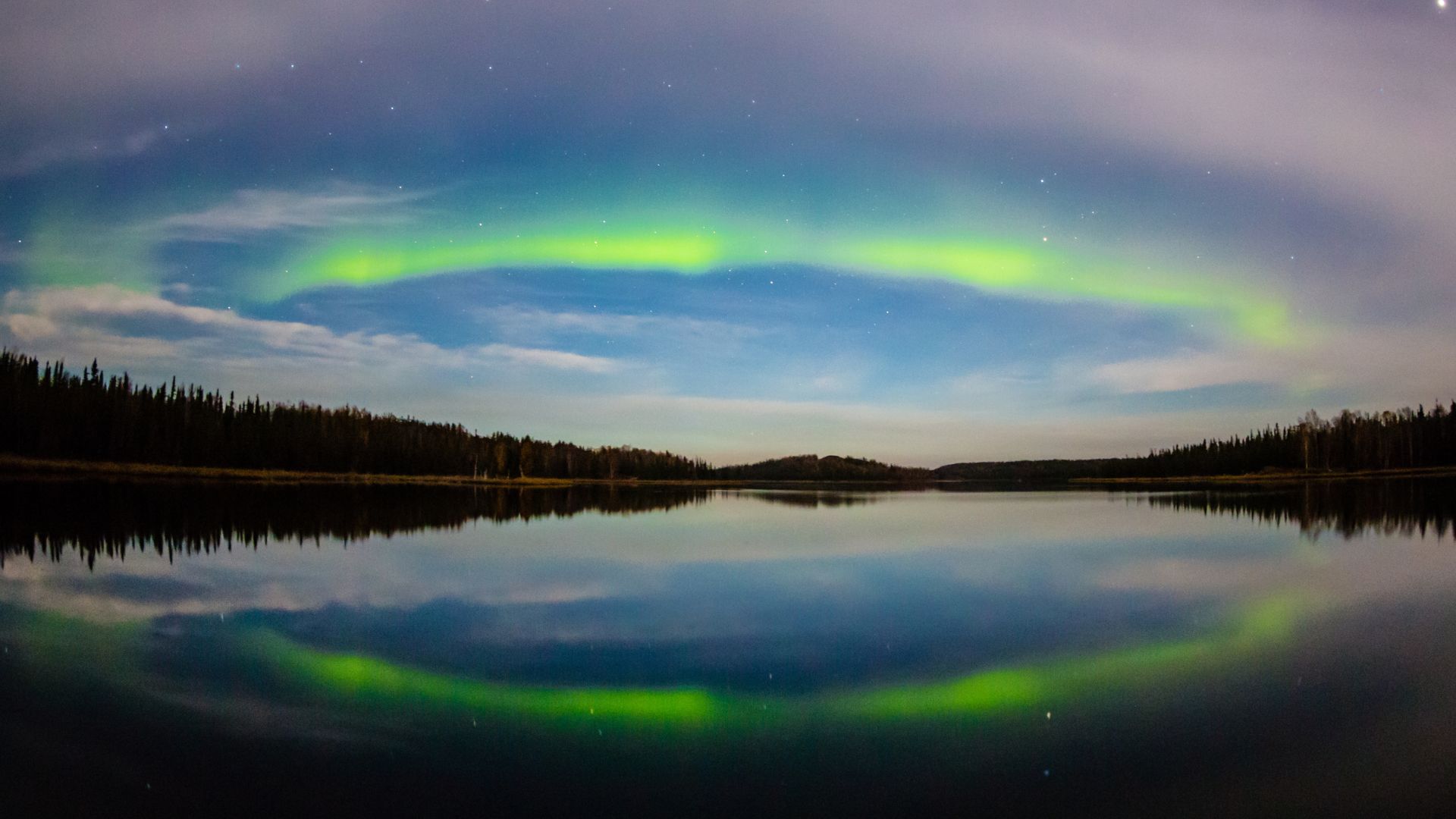
The semi-nomadic Sami people indigenous to northern Finland believe that the elusive lights are connected to the souls of dead relatives and so should be treated with deep respect. It’s because of this that whistling in the presence of the Northern Lights is a big no-no since the Sami believe the whistler could be carried up into the sky or even killed.
Sky on fire
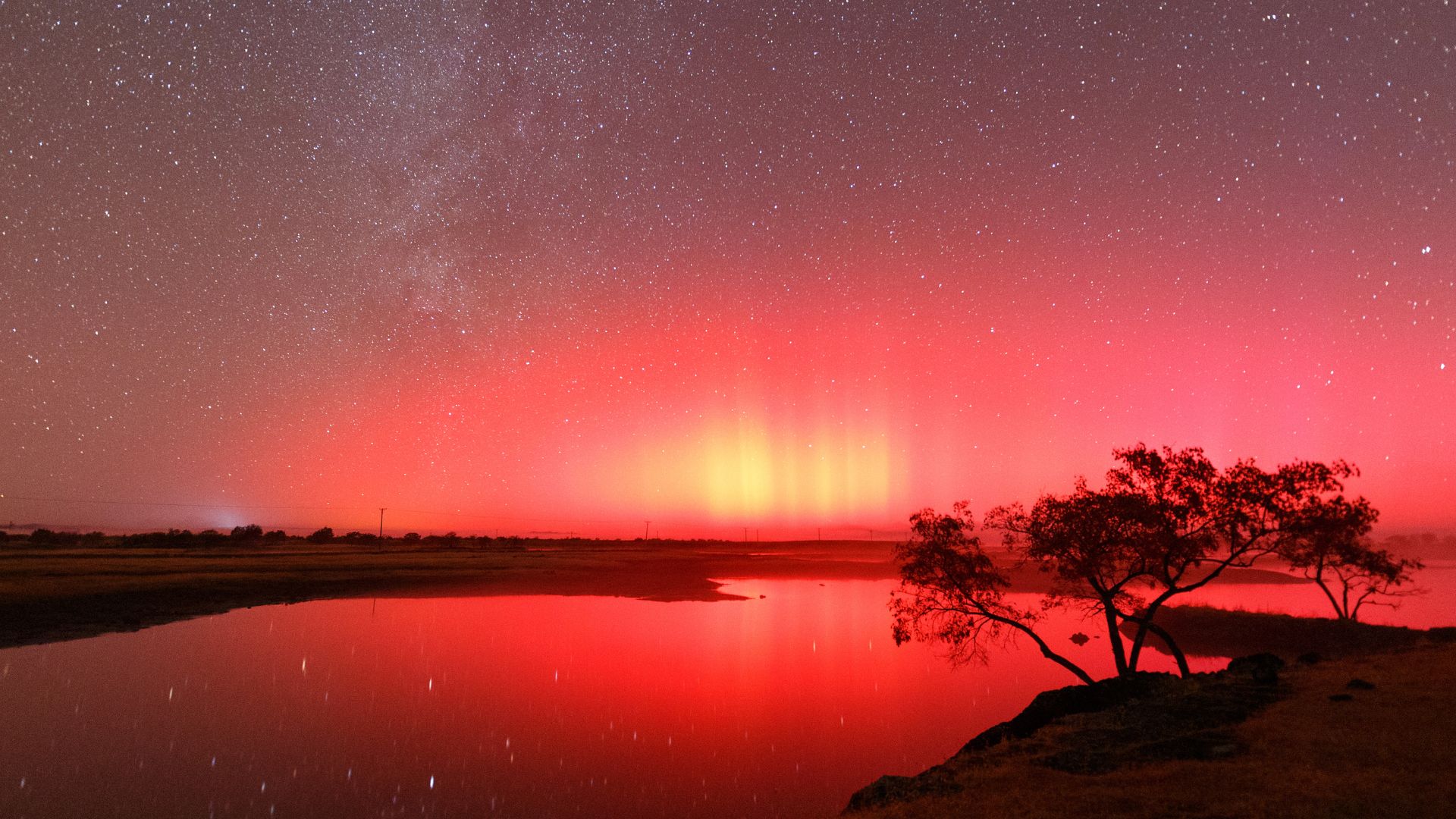
This wonderful image showcasing the sky ablaze in shades of crimson, bold red, and maroon is made all the more special by the millions of stars glimmering in the night sky. Historically some cultures viewed the lights as bad omens or warnings from the gods and it’s easy to see why with this image as it seems the whole sky has almost been set alight.
Healing power
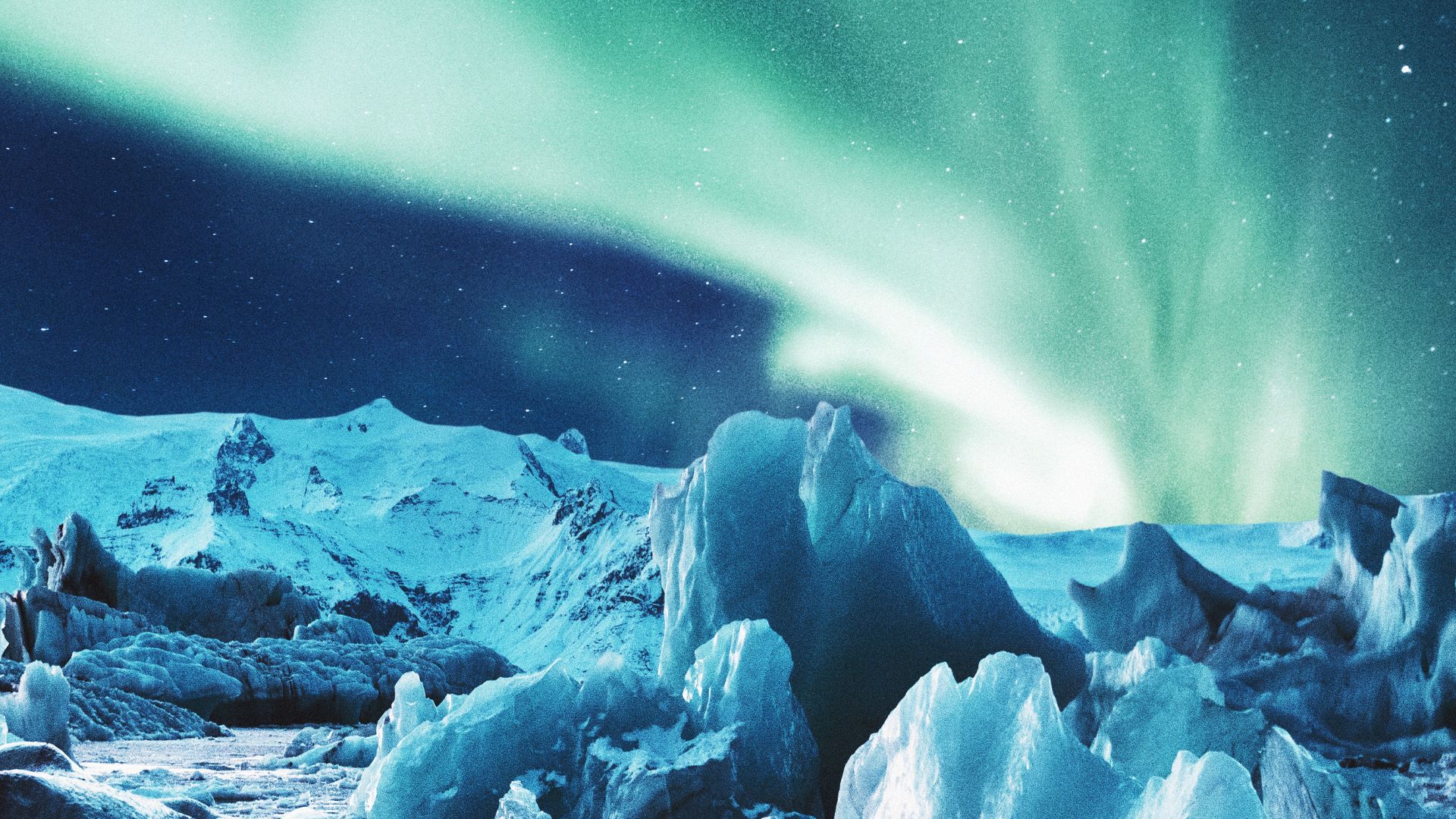
The majestic light displays often seen in Norway, Finland, and Iceland have brought tremendous positive economic benefits since visitors from around the world are eager to witness the displays in person. Today, a range of retreats offer wellness programmes that incorporate watching the Northern lights into meditation sessions for the ultimate relaxation.
River rapids
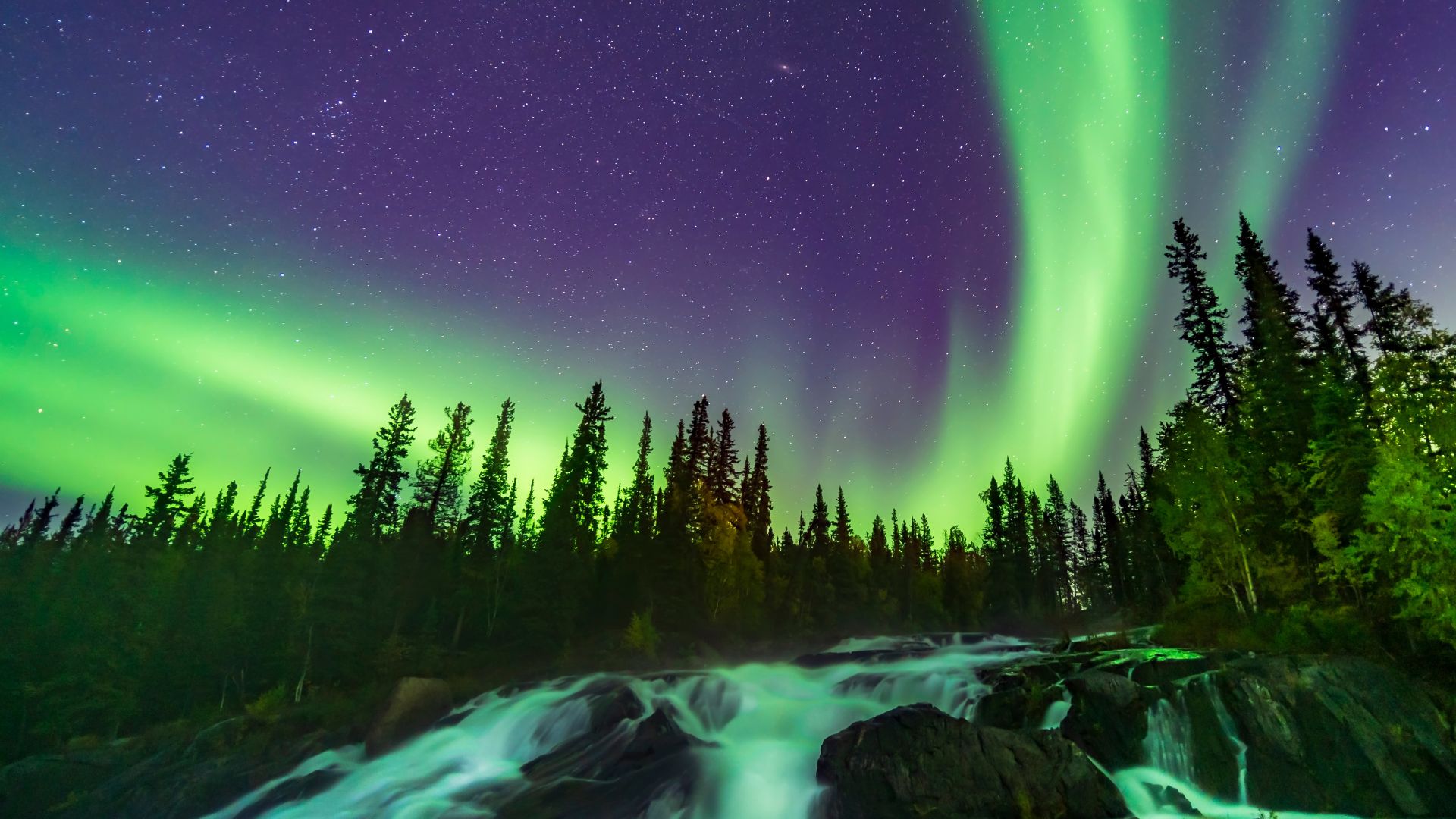
Here, the Northern Lights put on a show over the waterfalls known as the Ramparts on the Cameron River east of Yellowknife in Canada. Created using a single exposure of 20 seconds with a 15mm lens the water has been illuminated to make it more white.
Whimsical wonderland
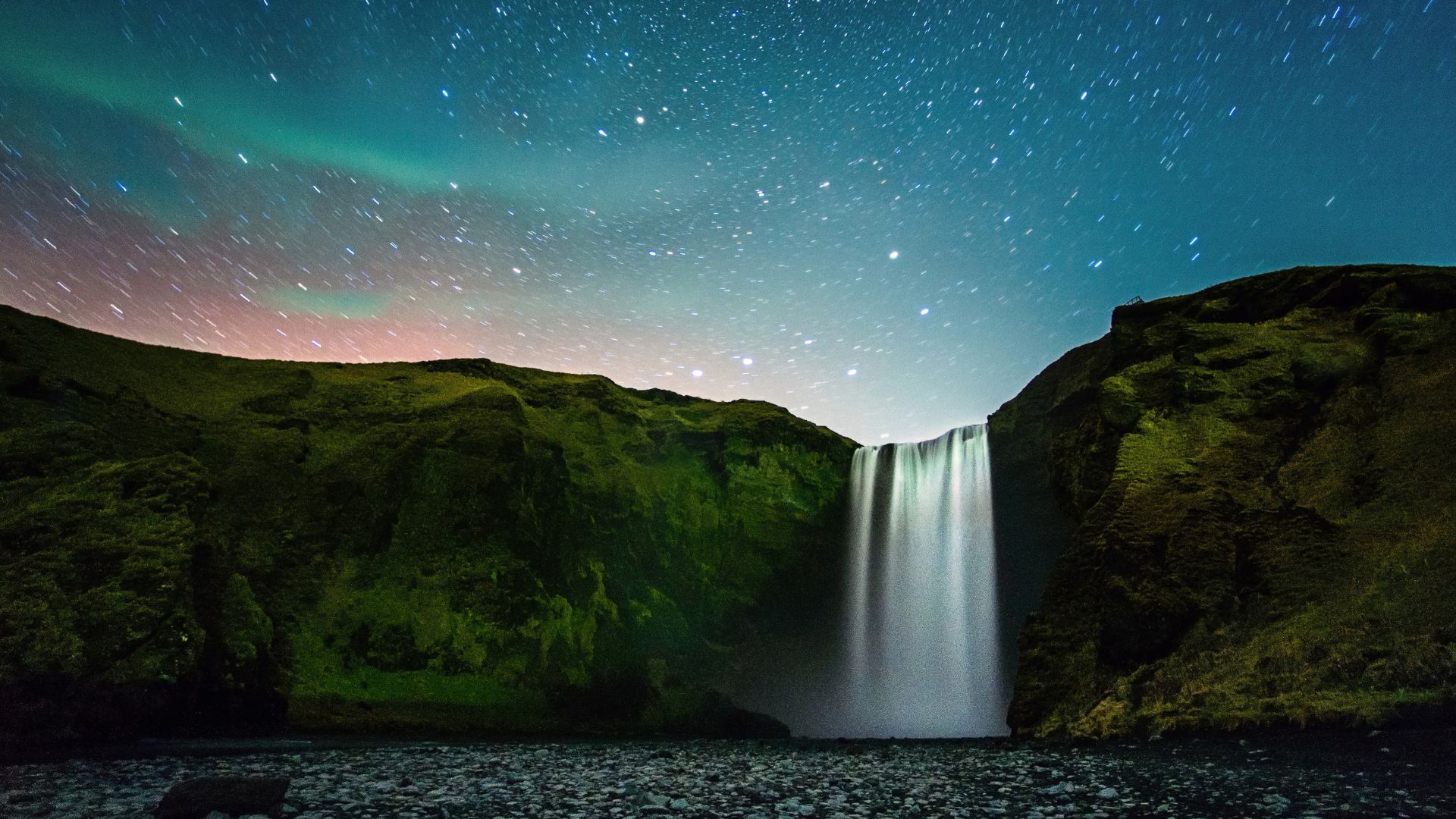
Stars, waterfalls, and the Aurora Borealis make for a magical combination as seen here in Iceland. For the best chance of seeing the lights for yourself the ideal months to visit Iceland and the rest of the Nordic region are from October to March when the long winter months ensure prolonged periods of darkness.
Myth and legend
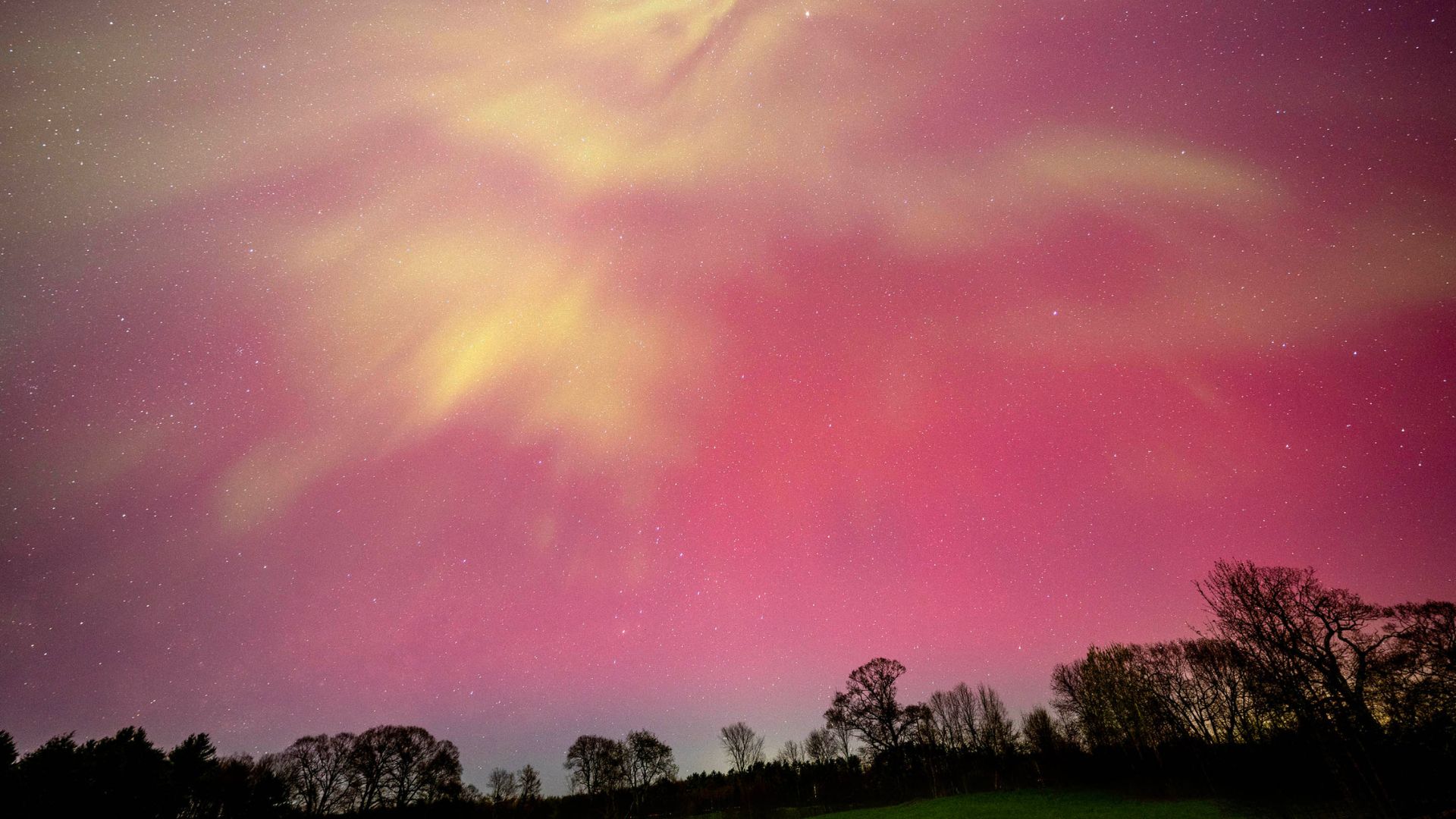
For the Inuit people of Alaska, the coloured lights were seen as the spirits of seals, deer and other animals that they hunted, while Canadian Inuit believed that the auroras were the spirits of their ancestors playing a game of football with a walrus skull in the sky.
Artist inspiration
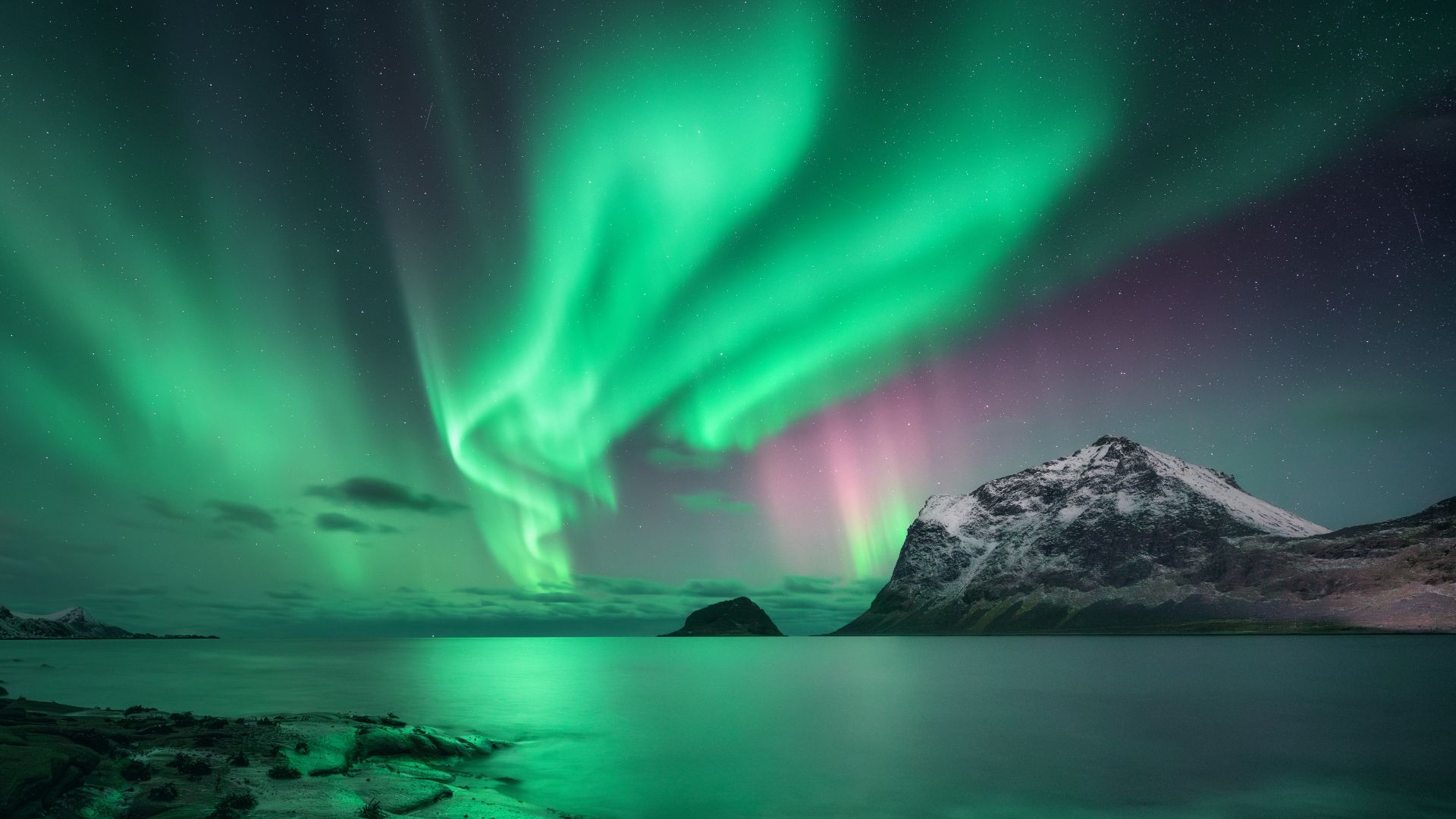
Since the beginning of time, the lights have found their way into the arts, inspiring authors, poets, and writers who’ve been captivated by their mythical allure. Homer's The Odyssey and Northern Lights by Philip Pullman are just a couple of pieces worth reading.
Ilulissat illuminated
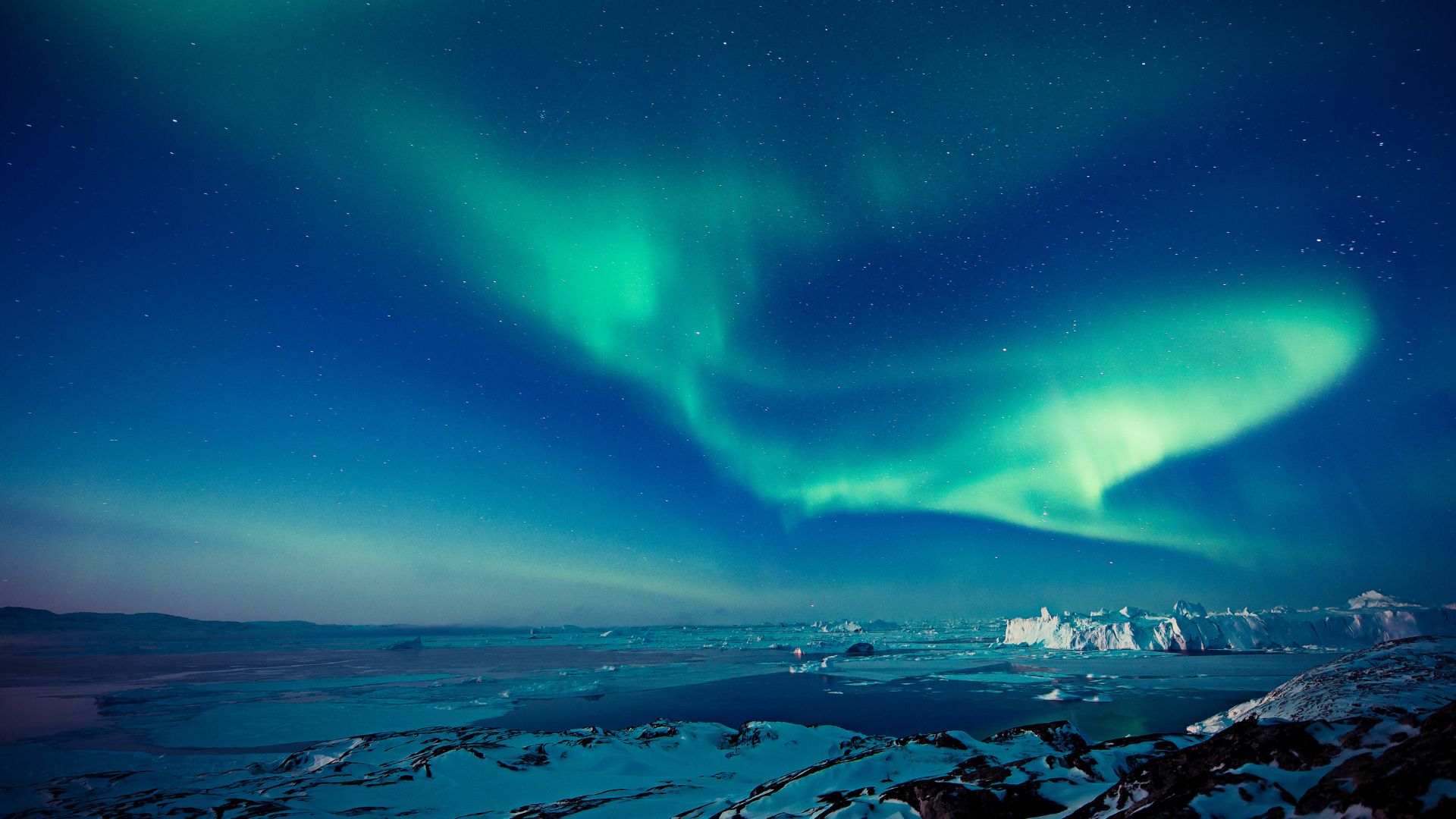
The lights dance over icebergs near Ilulissat, a coastal town in western Greenland known for the Ilulissat Icefjord and the huge icebergs of Disko Bay. Home to thousands of Greenland dogs, used for dogsledding, it’s a fun place to spend a long weekend getting to grips with a slower pace of life in the cold.
Outer space
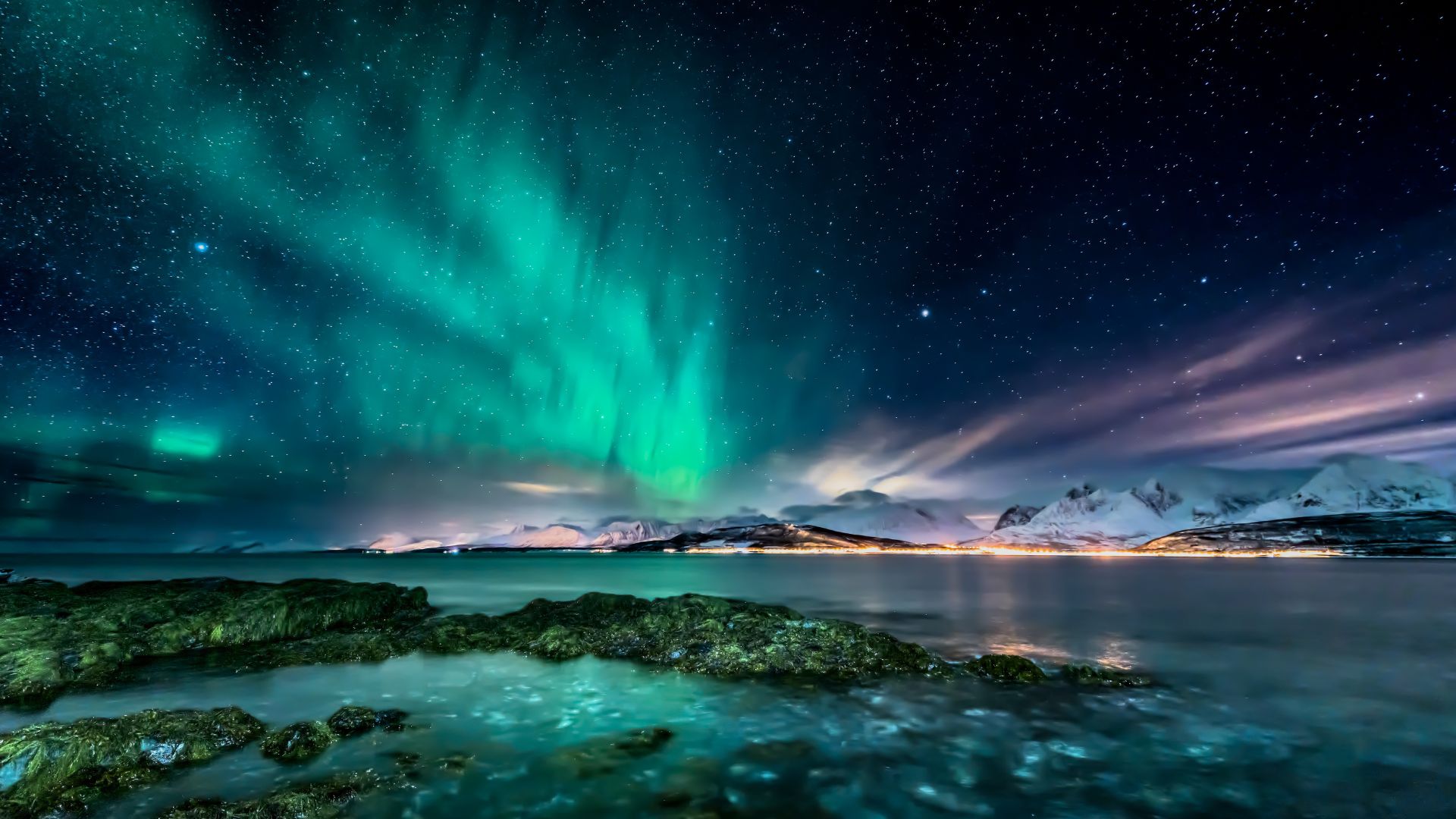
Auroras can even be viewed from space and appear as a magical ring around the Earth, while the Hubble Space Telescope has identified aurora-like phenomena on distant exoplanets, proving that they are not exclusive to Earth.
The ideal image
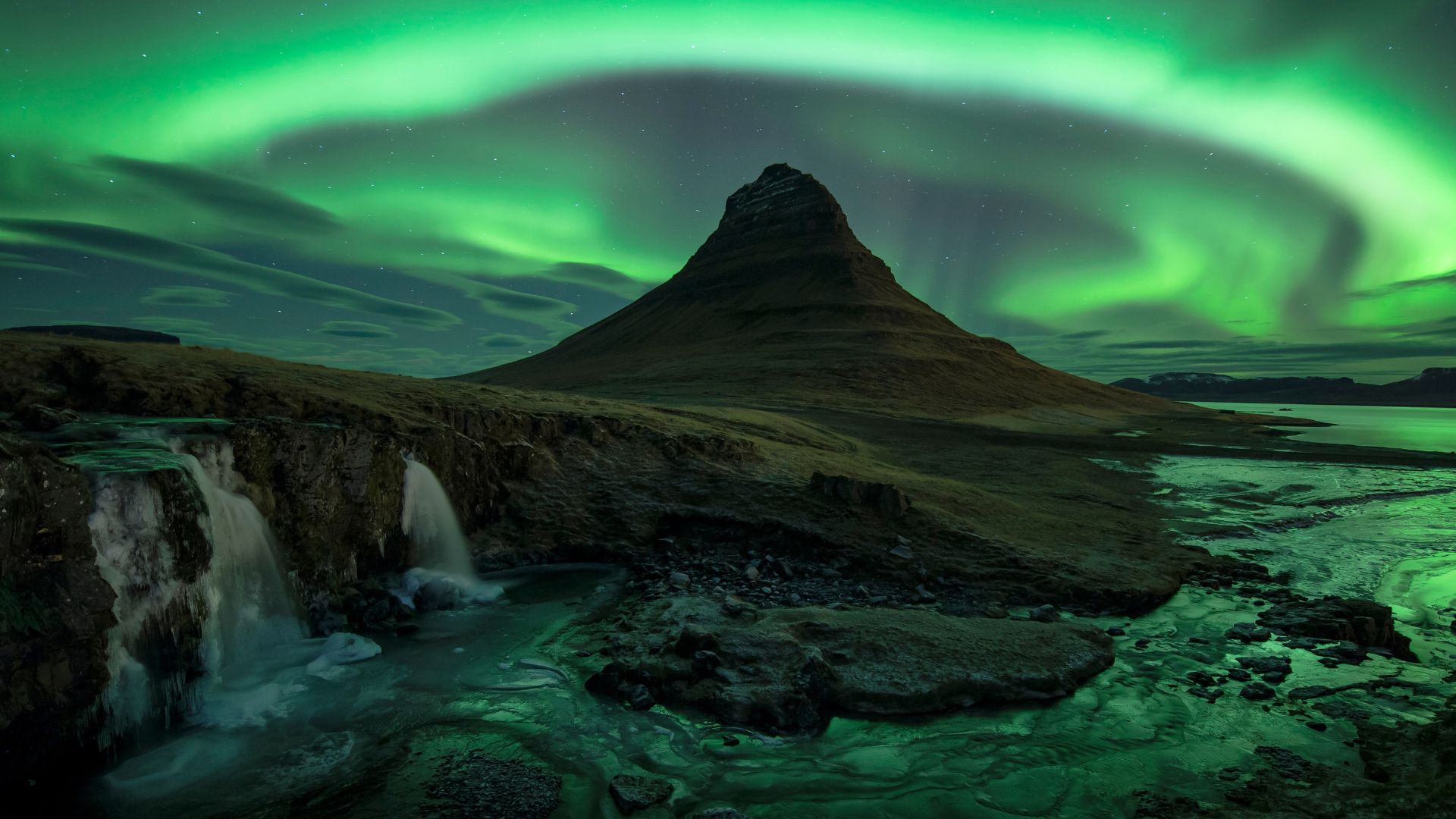
This magnificent image shot in Kirkjufell, near Grundarfjordur, Iceland, was probably captured with a wide-angle lens to capture the vast expanse of the sky. A good camera is crucial in snapping the lights, and a tripod will help when using slow shutter speeds.







